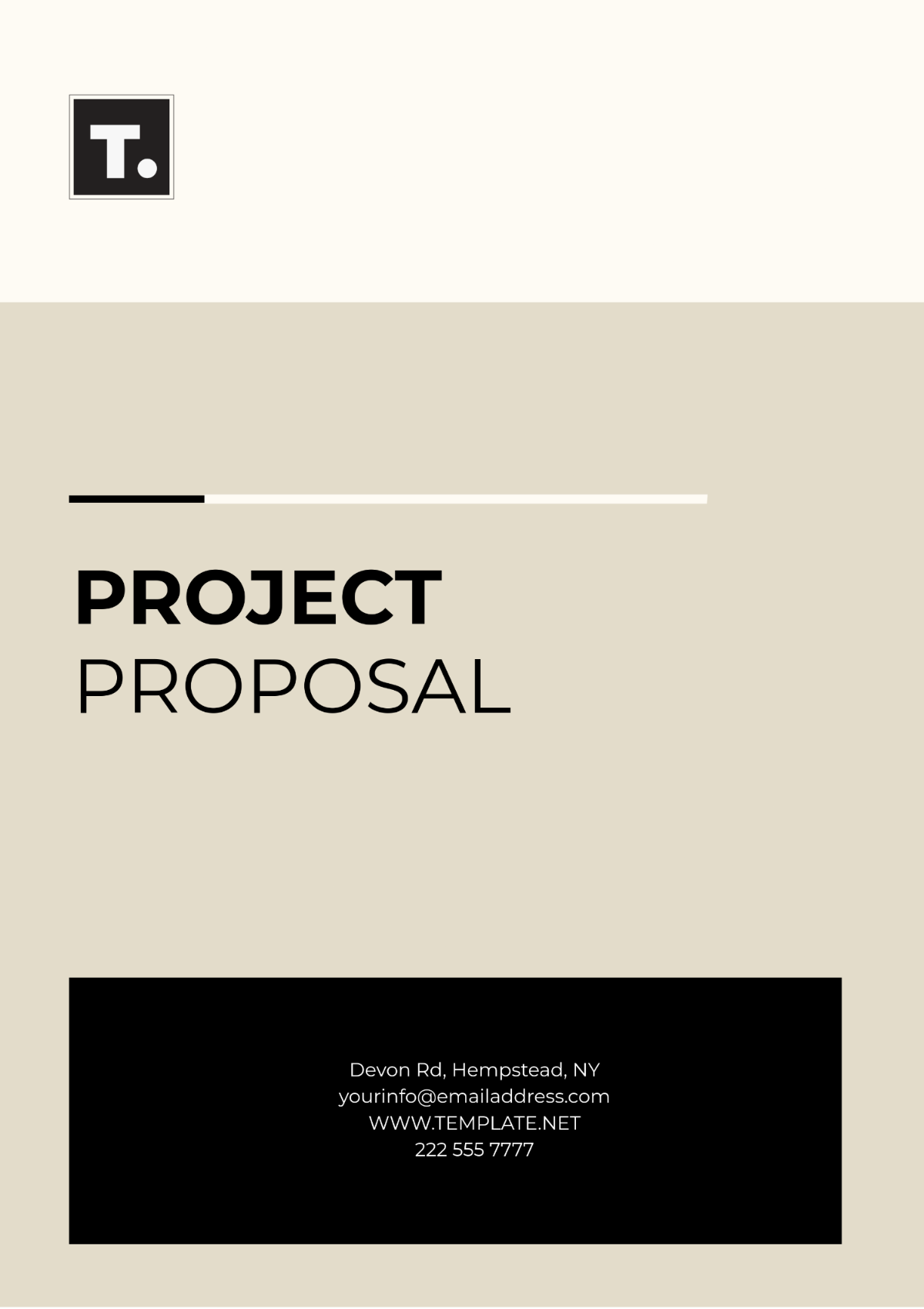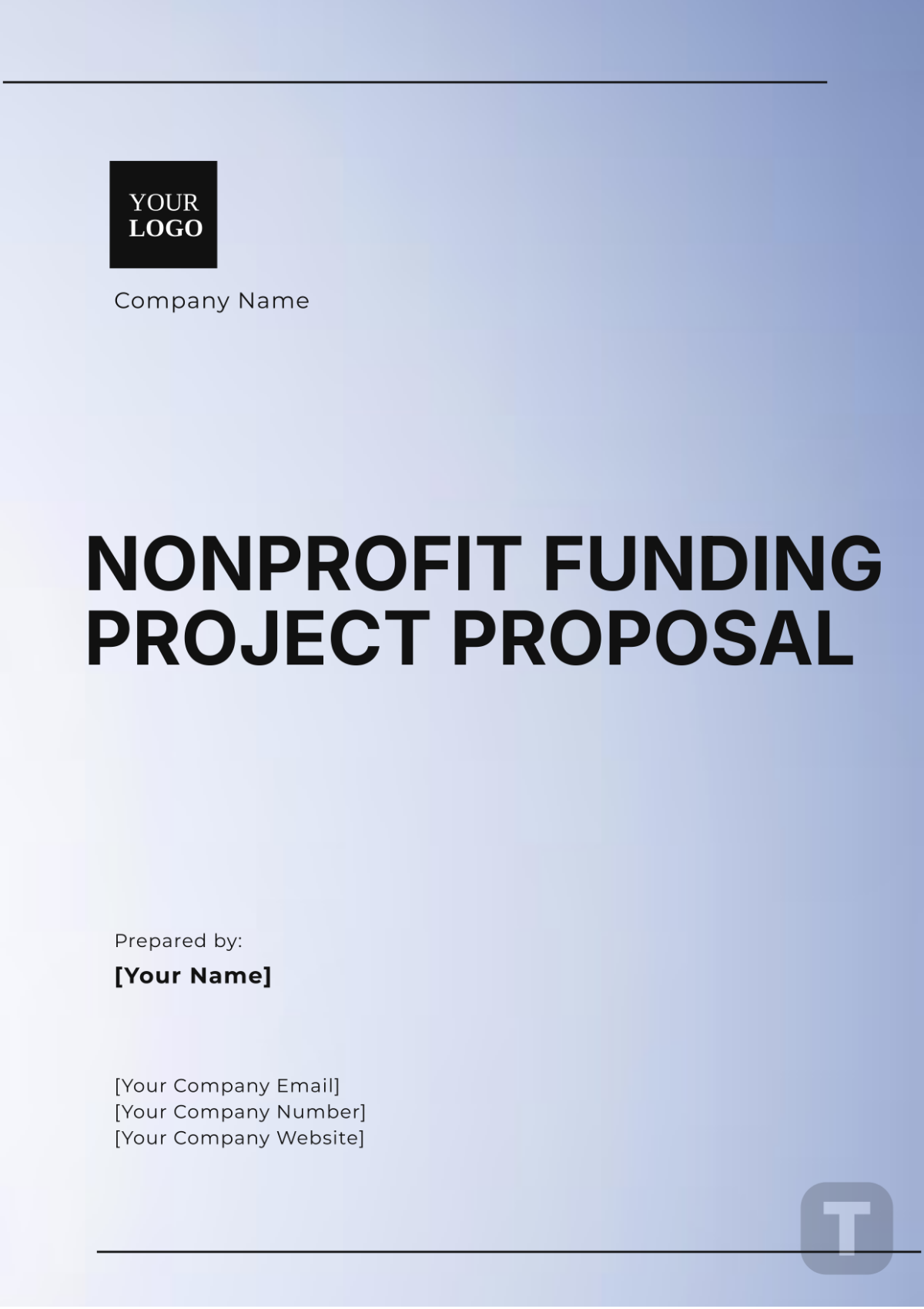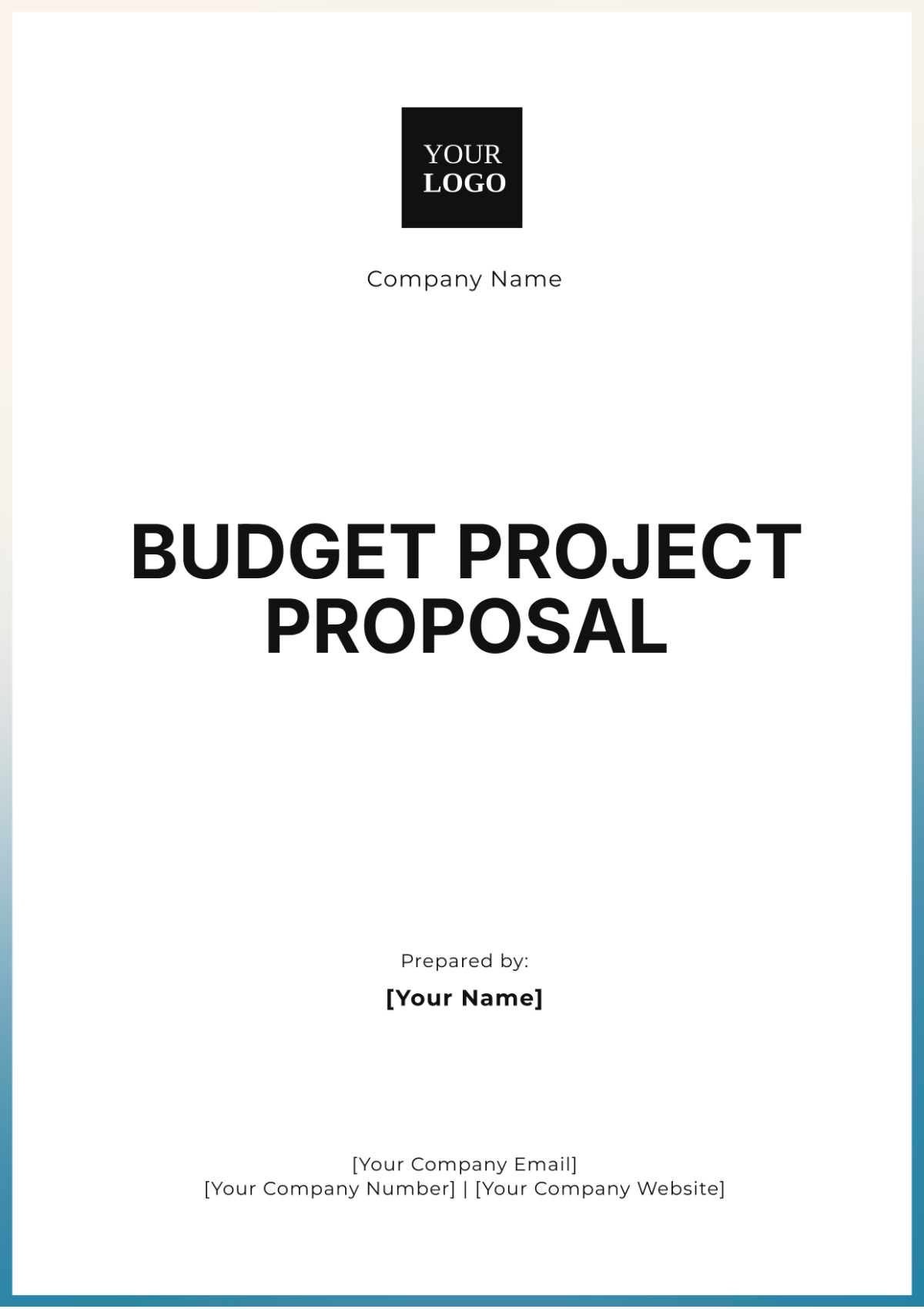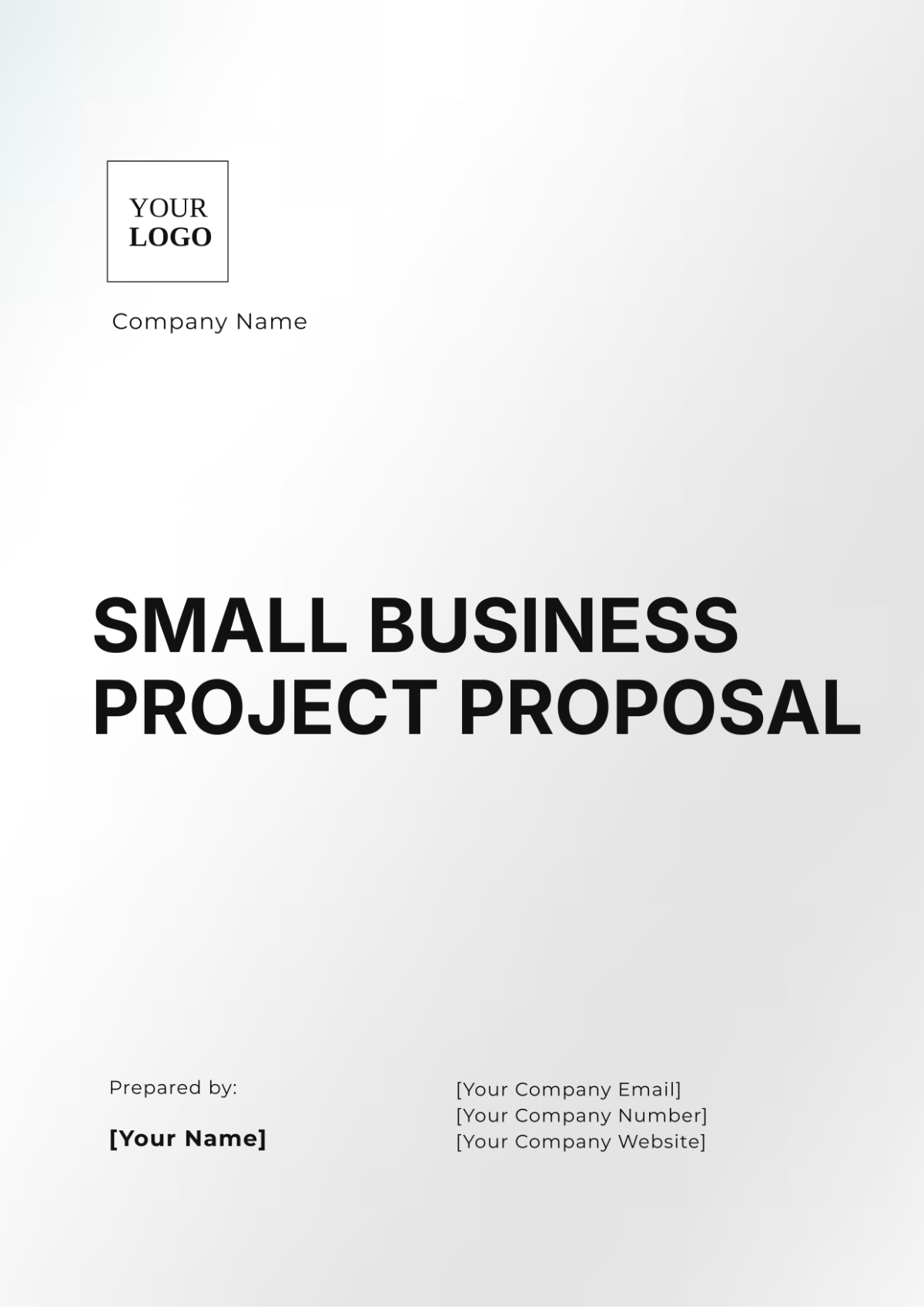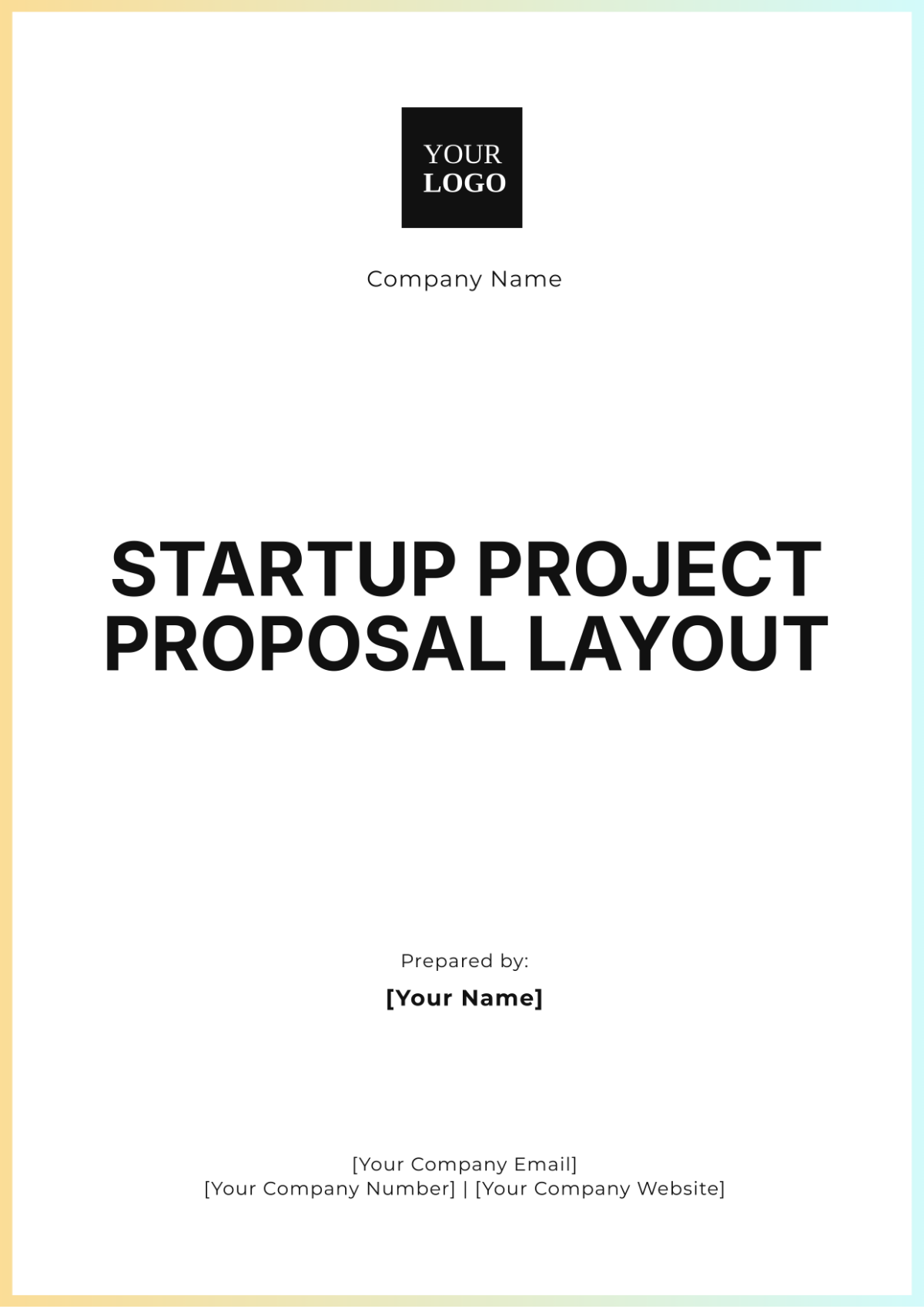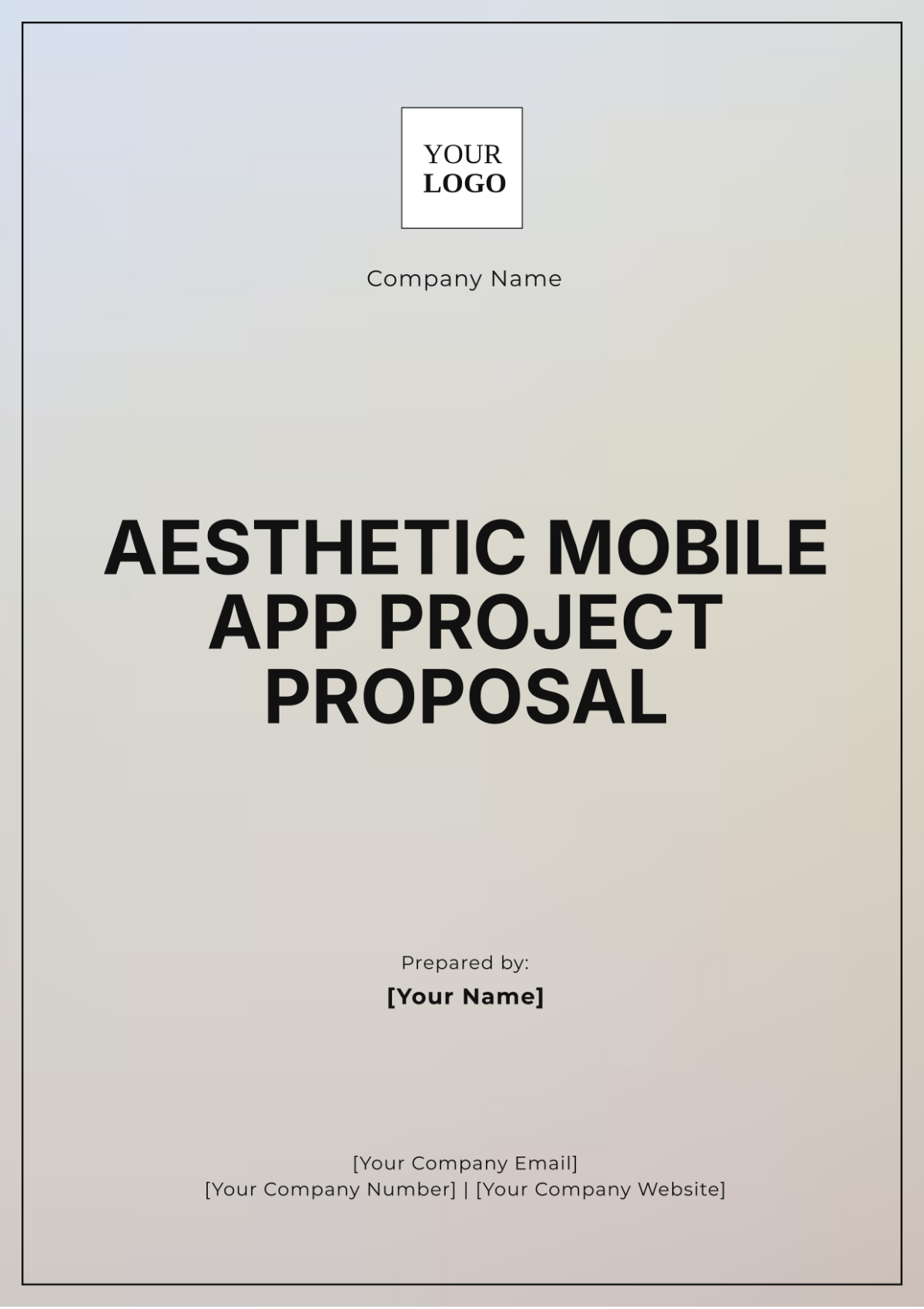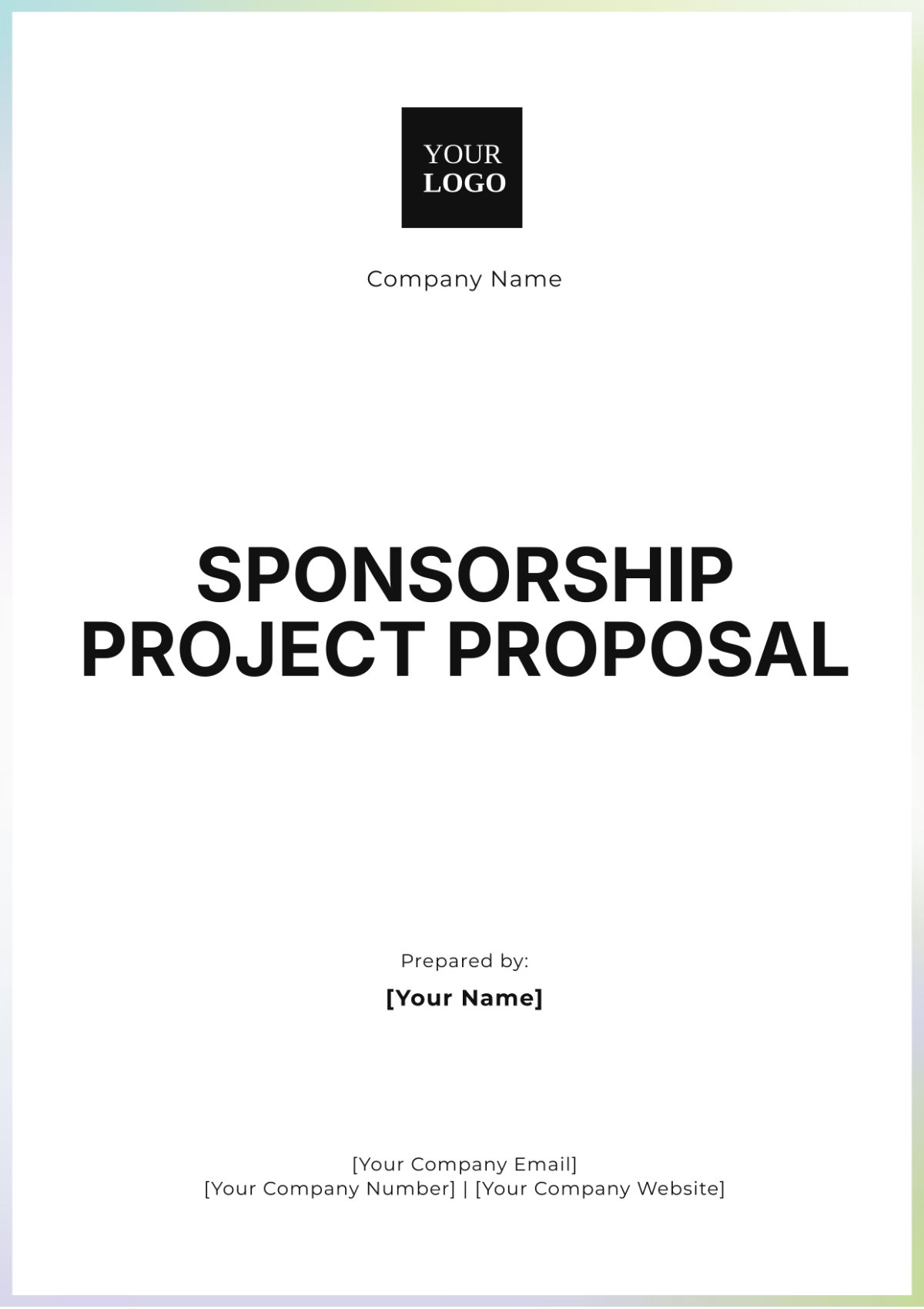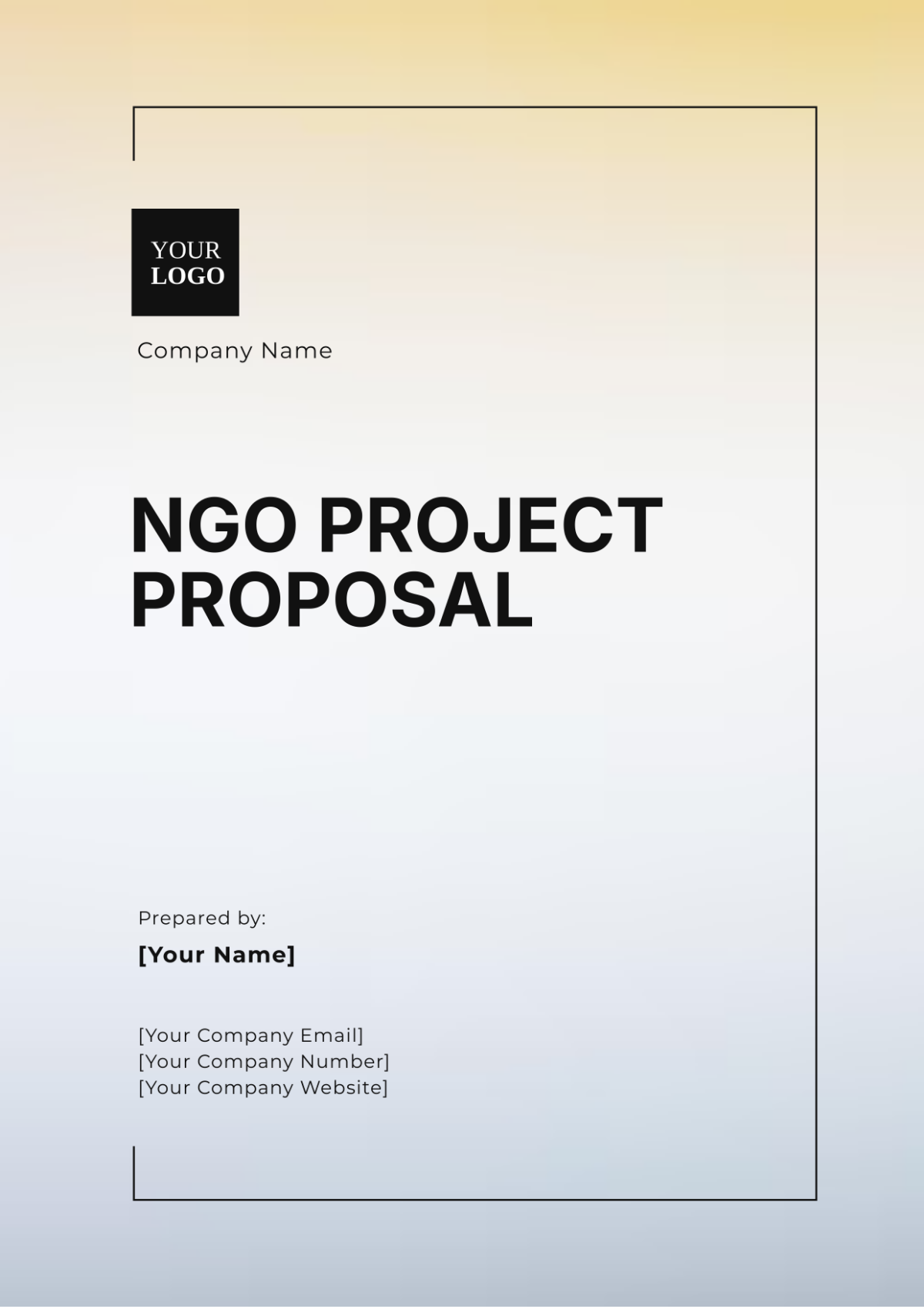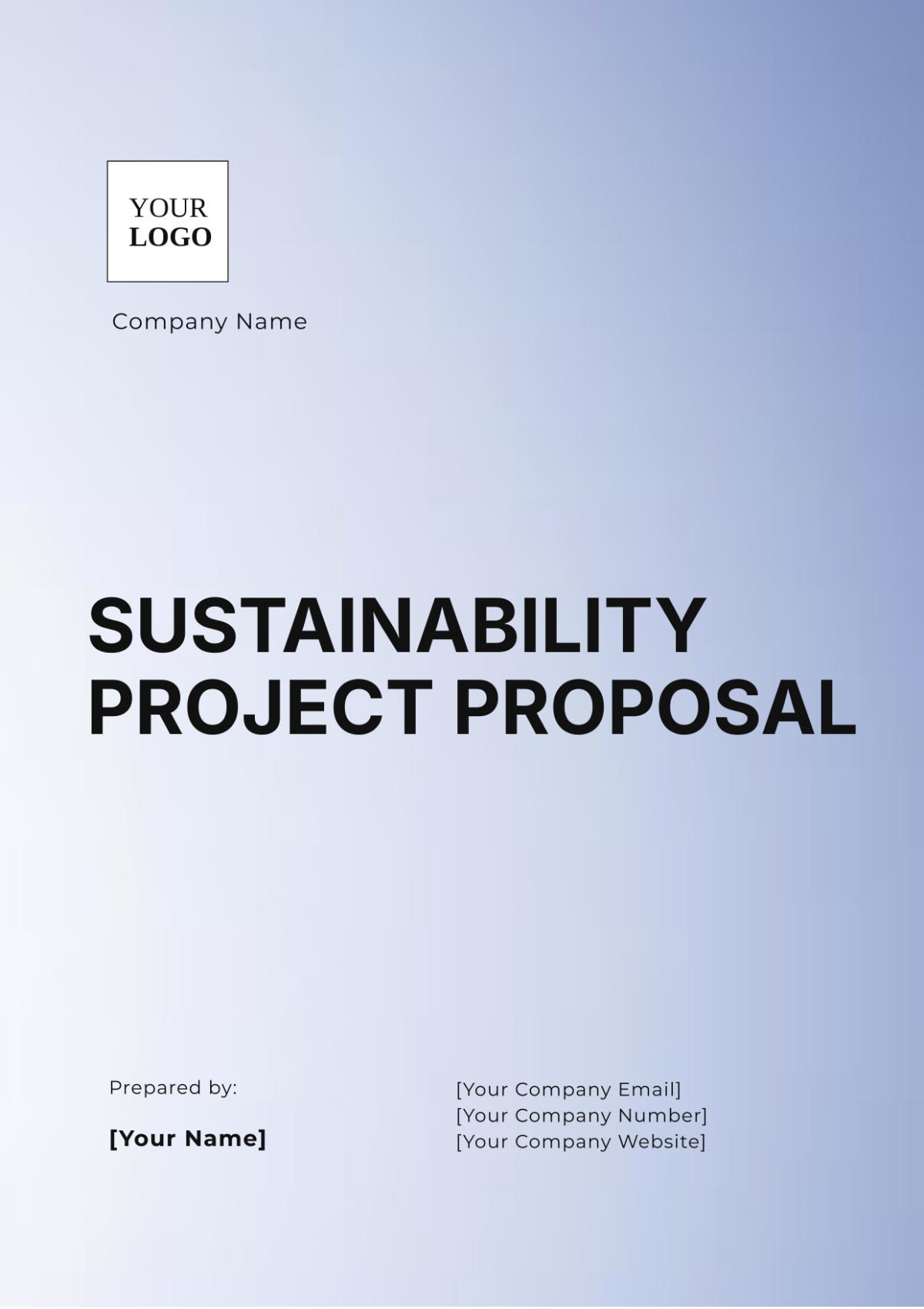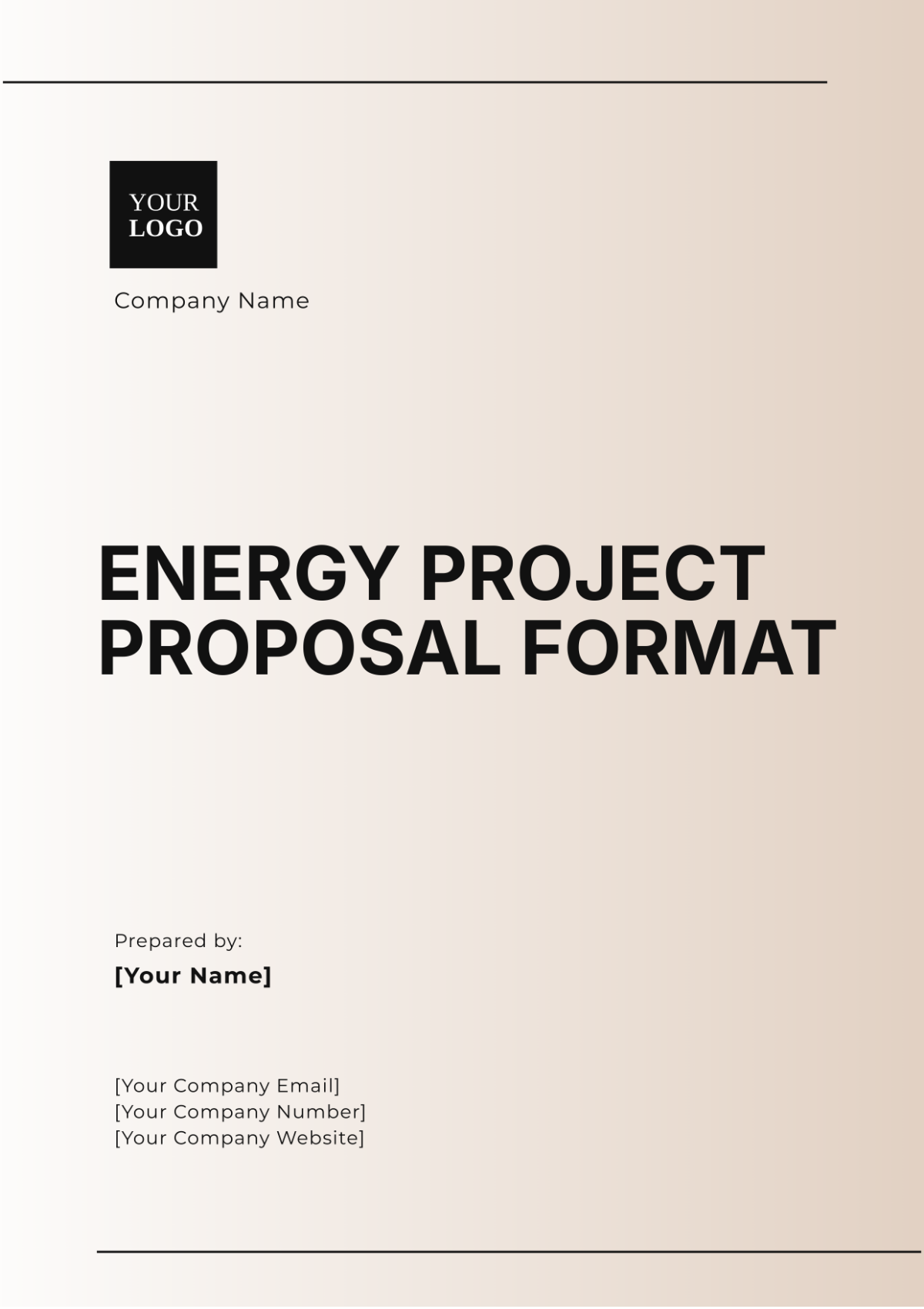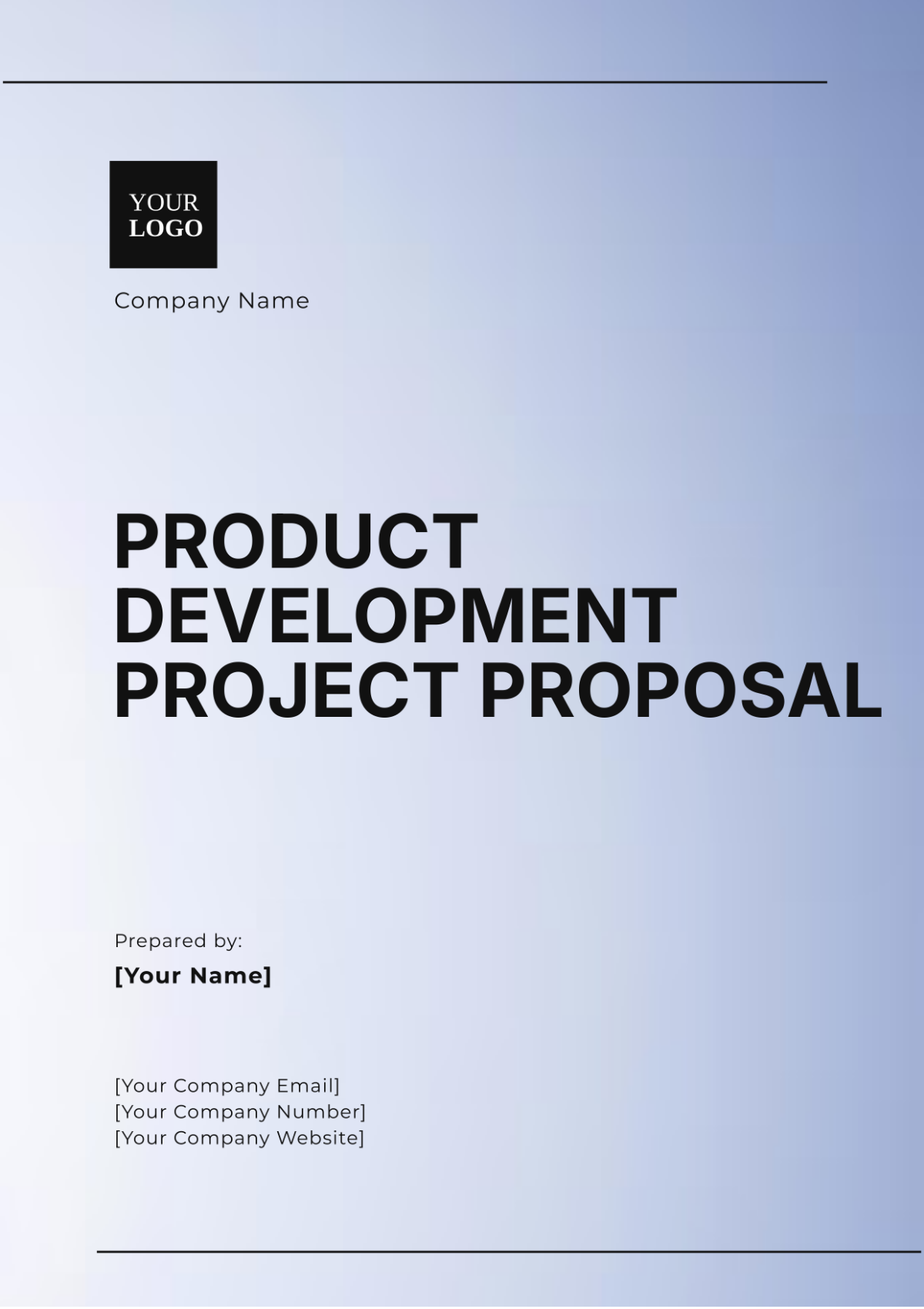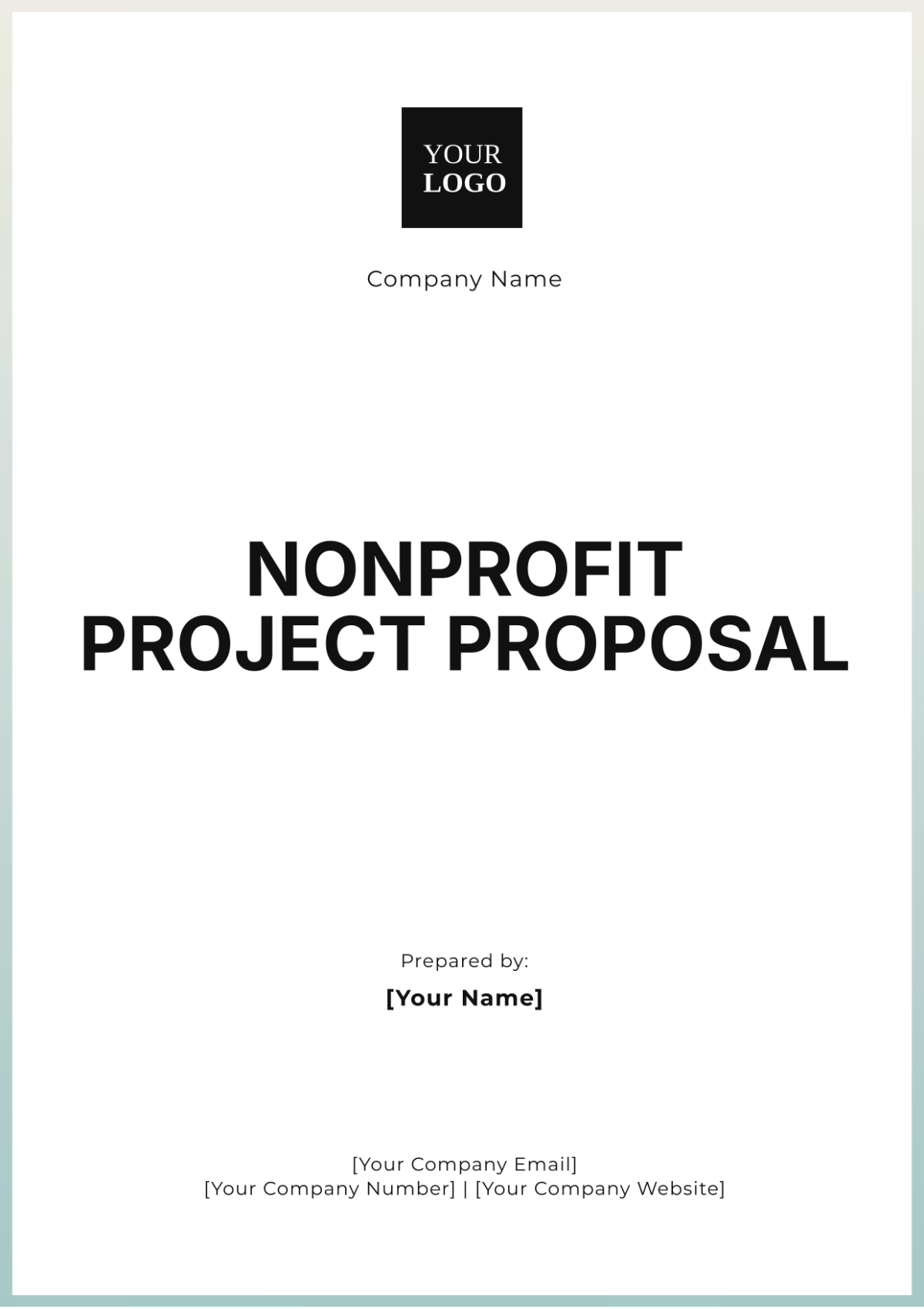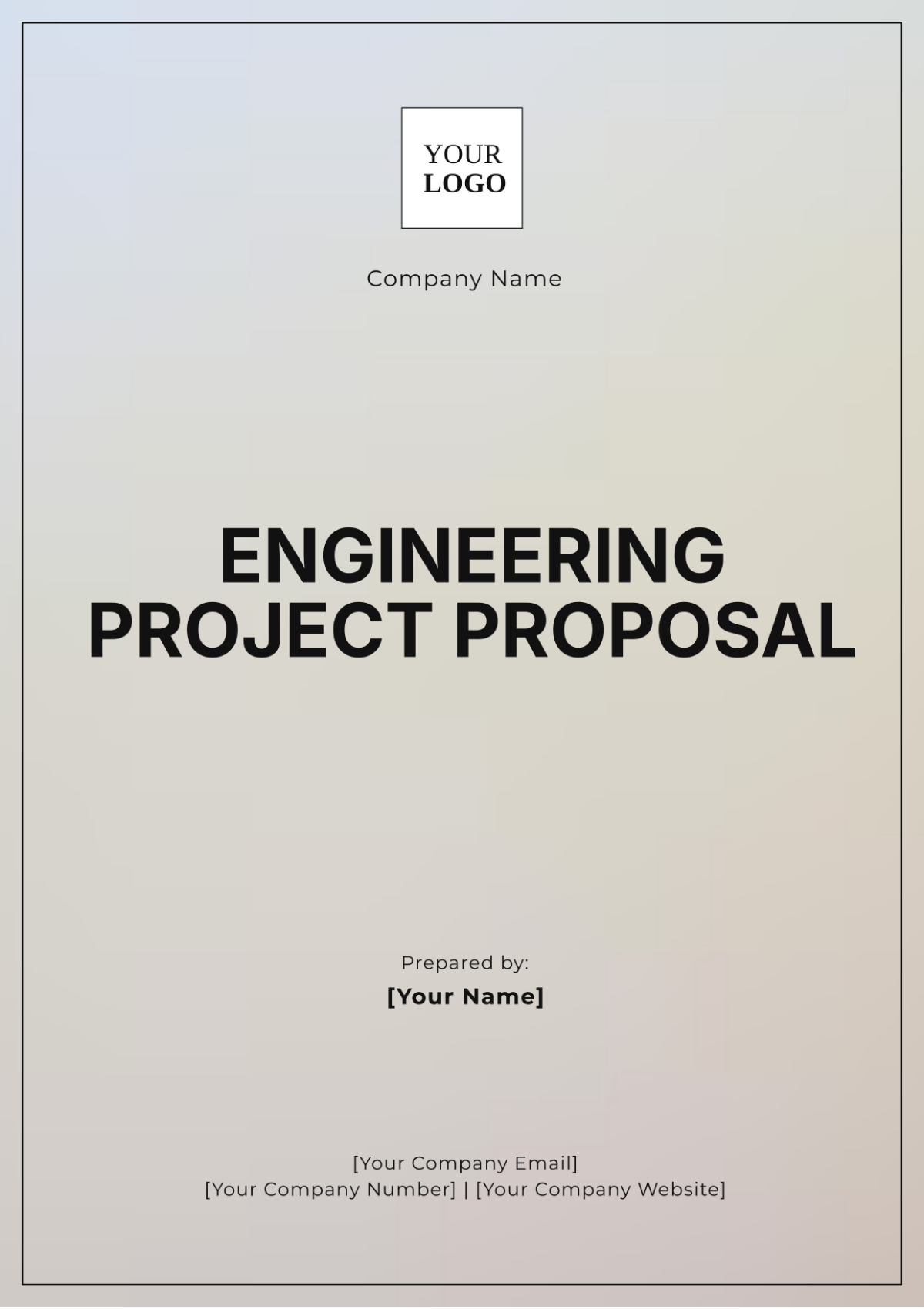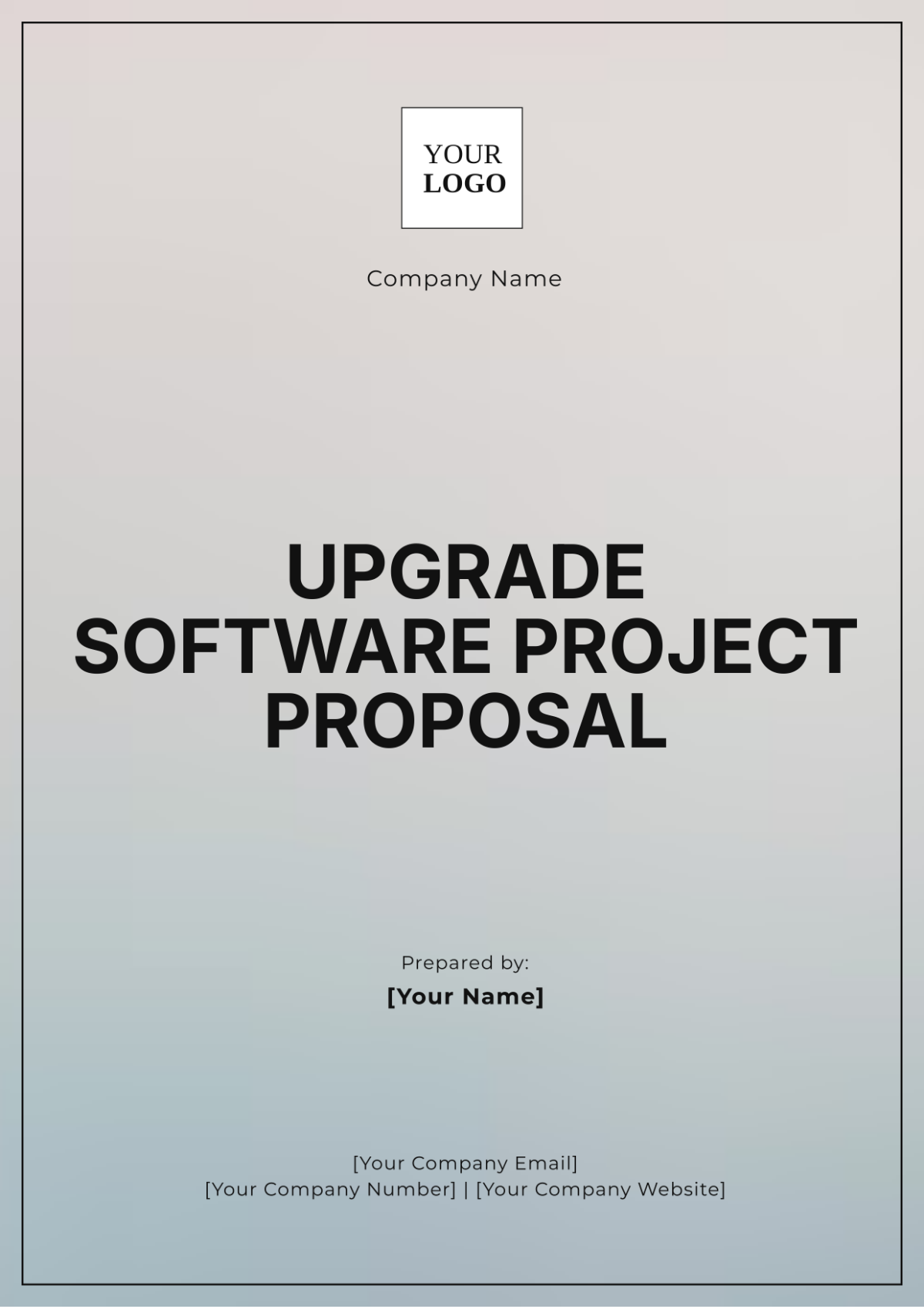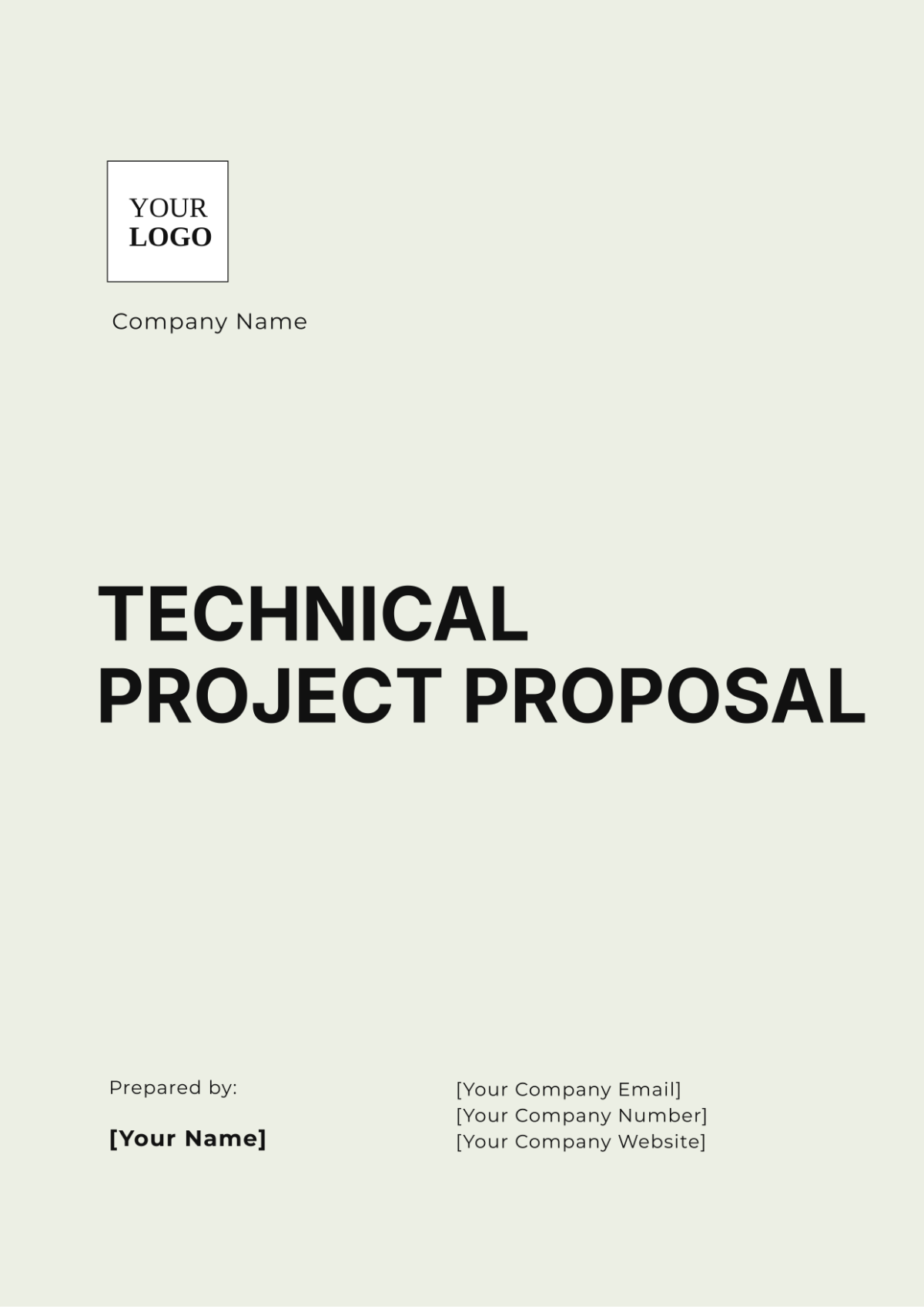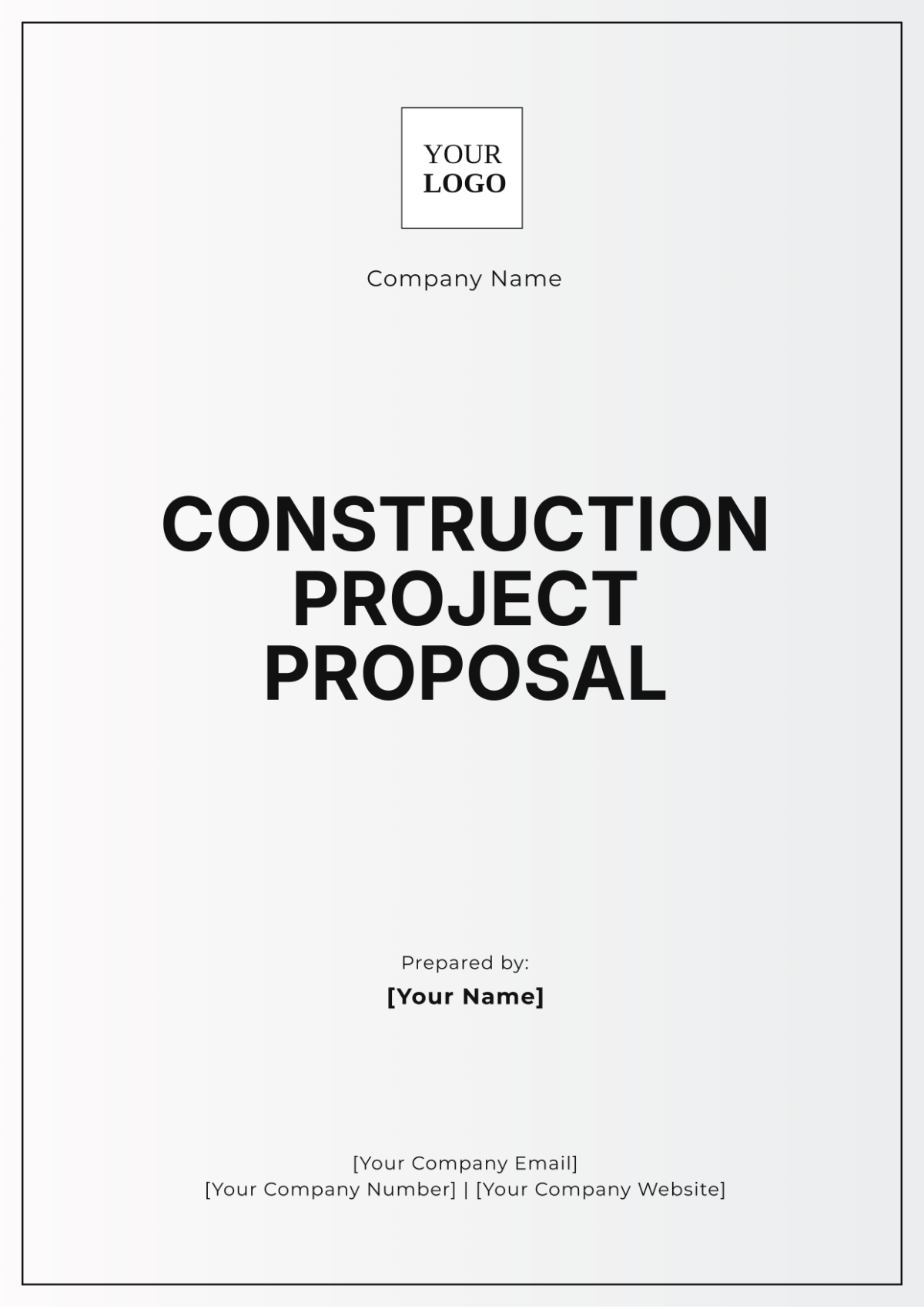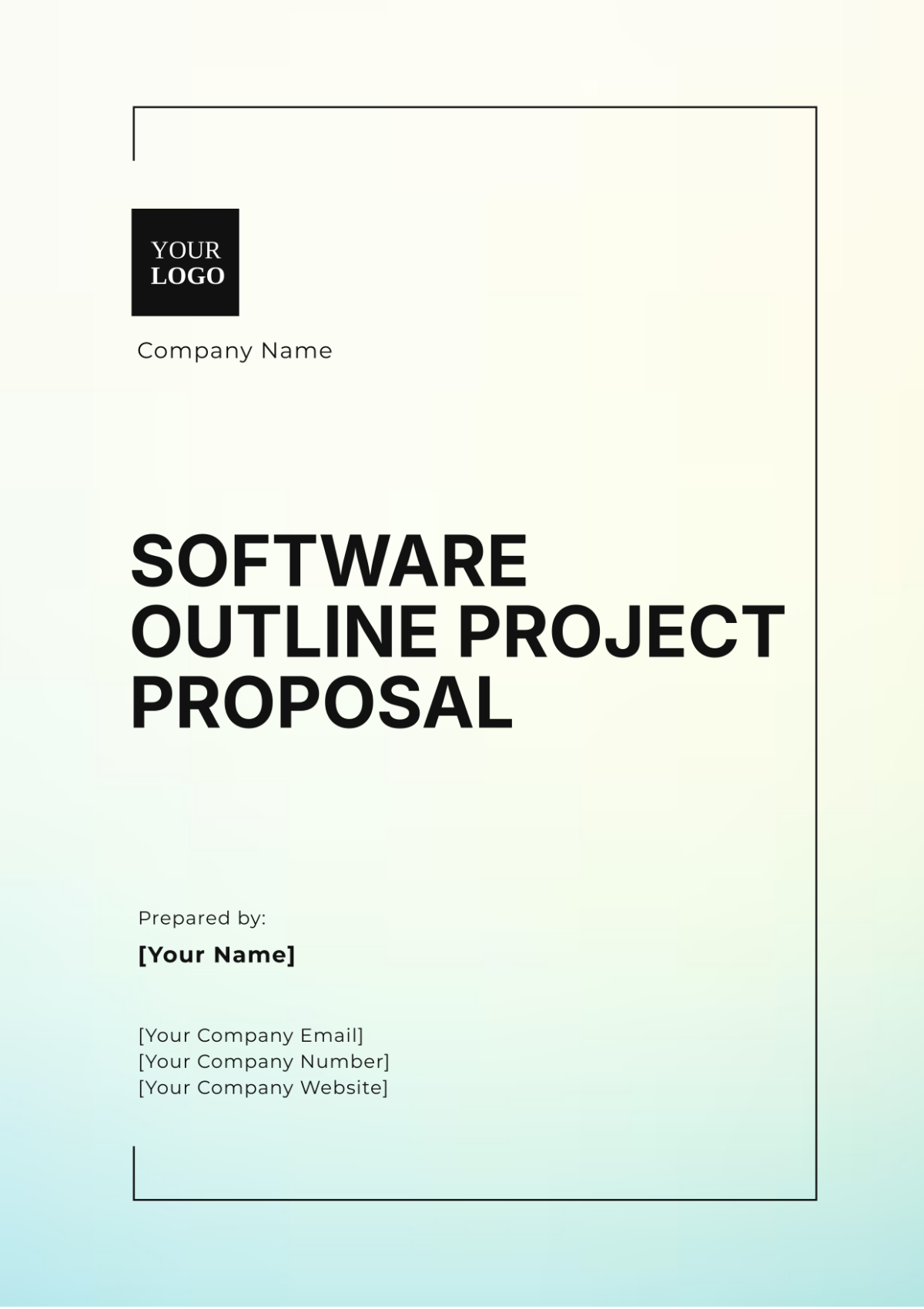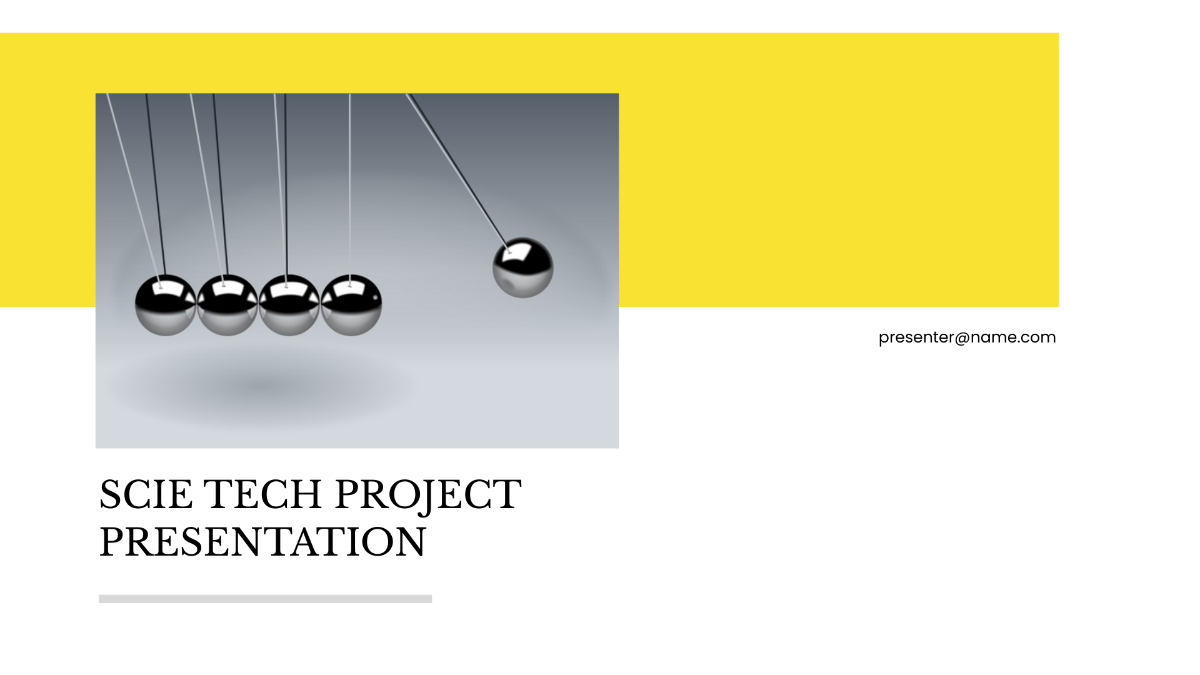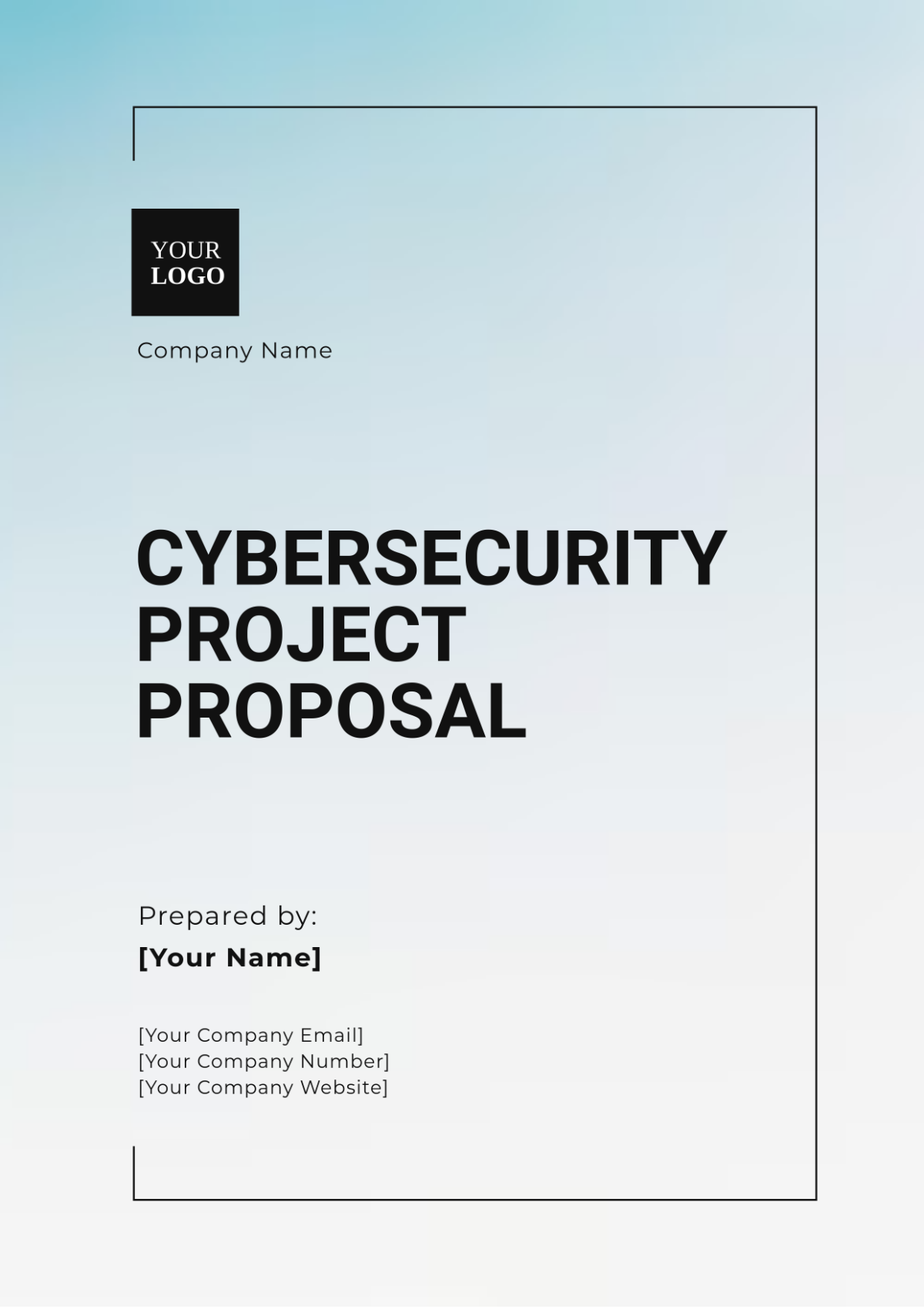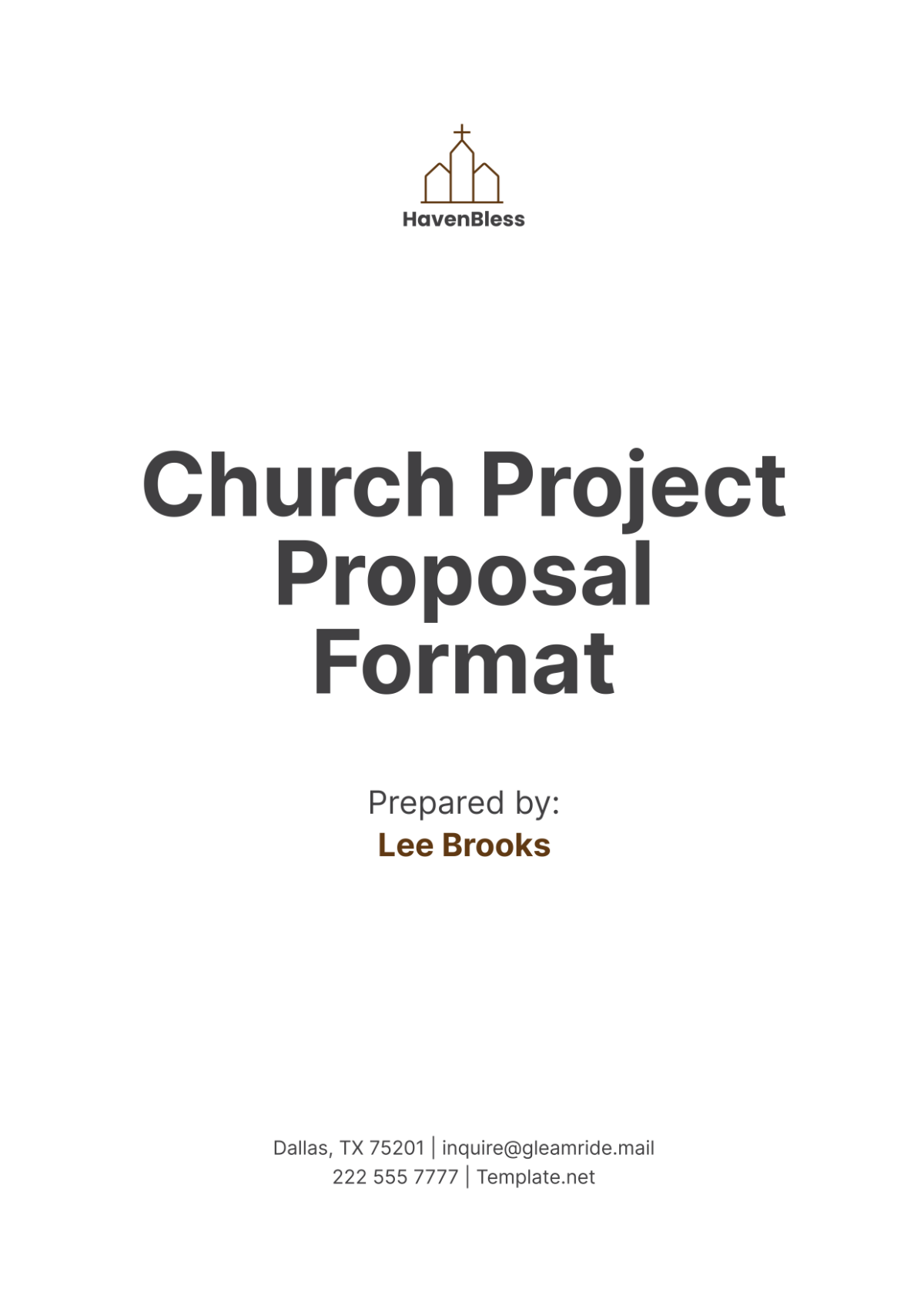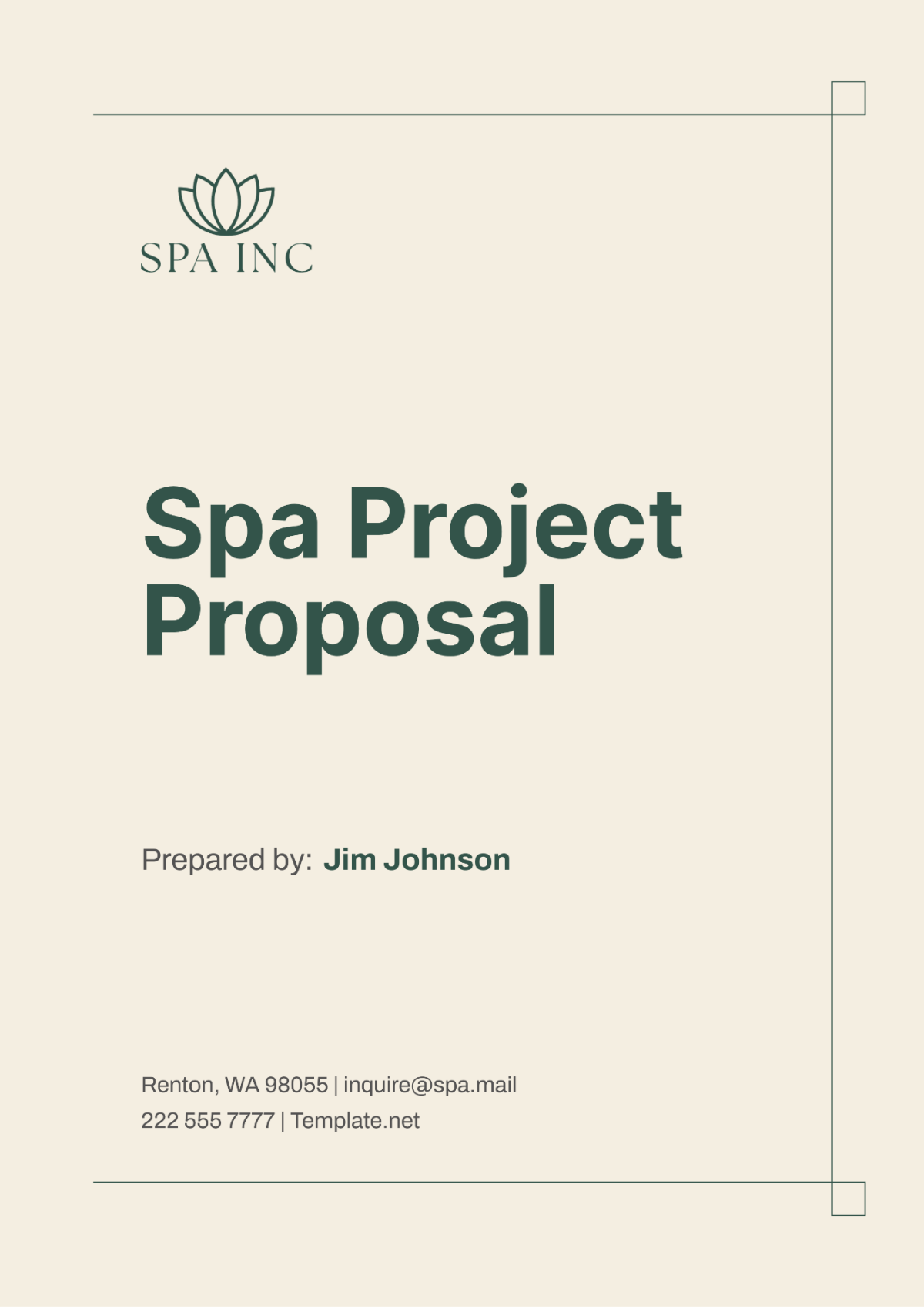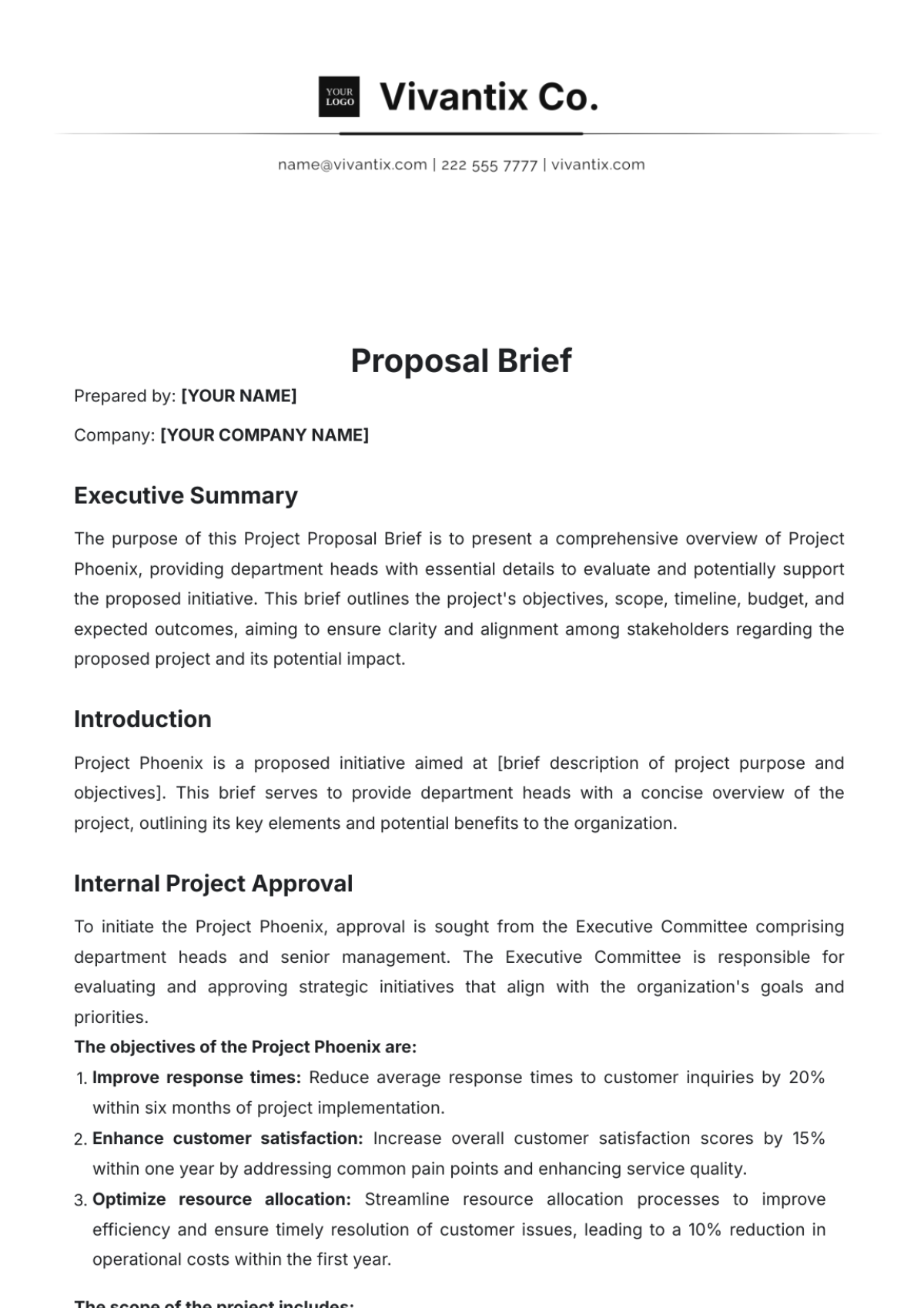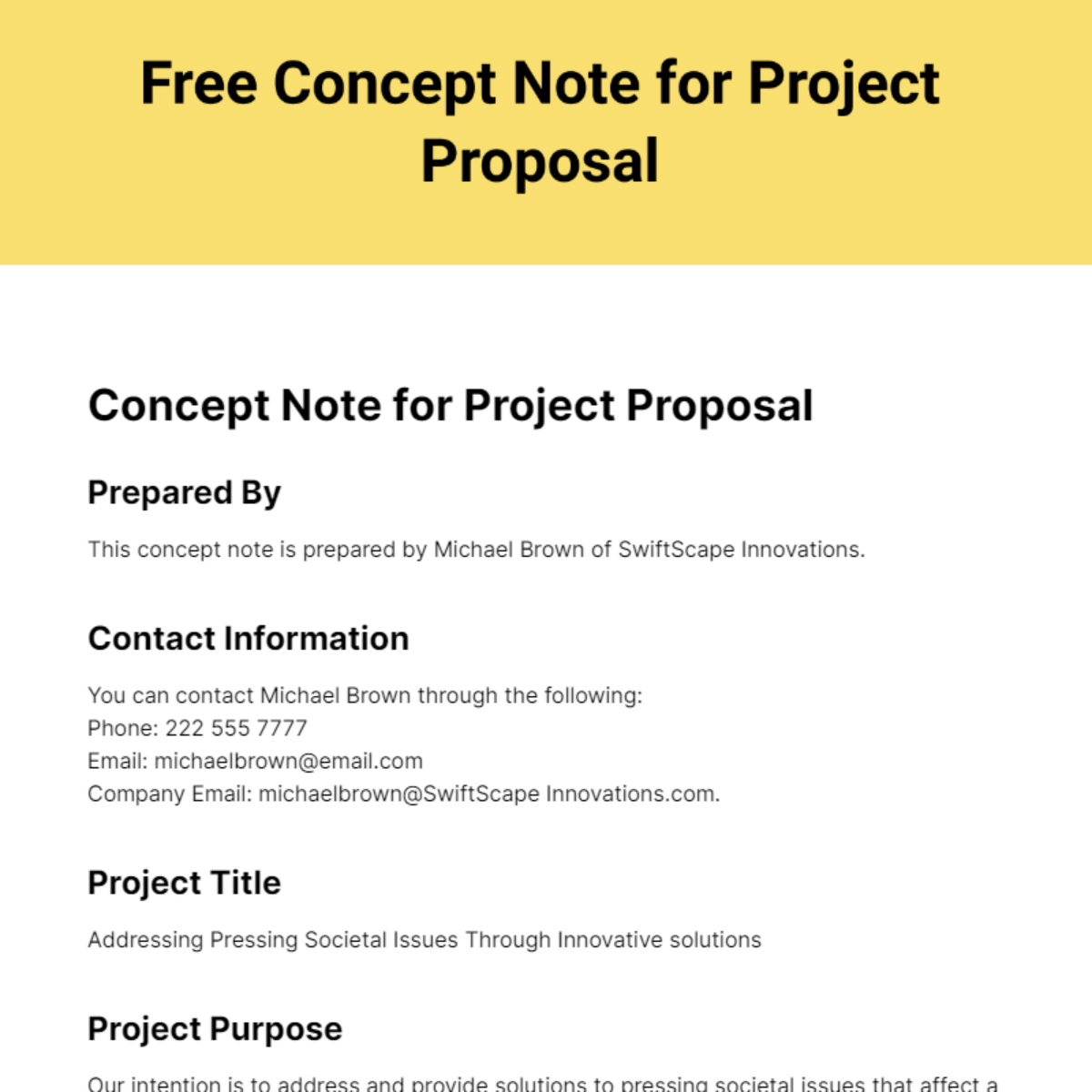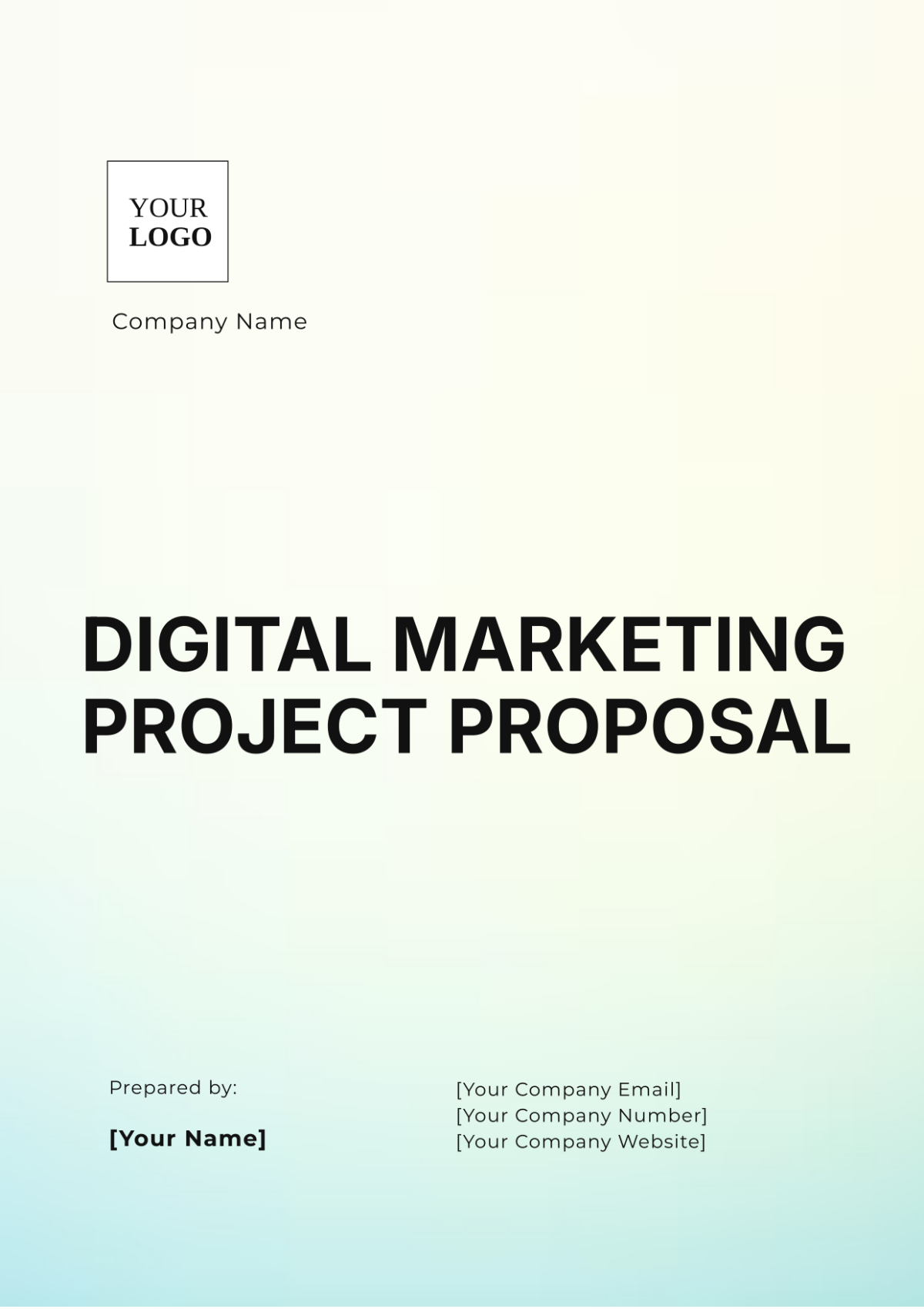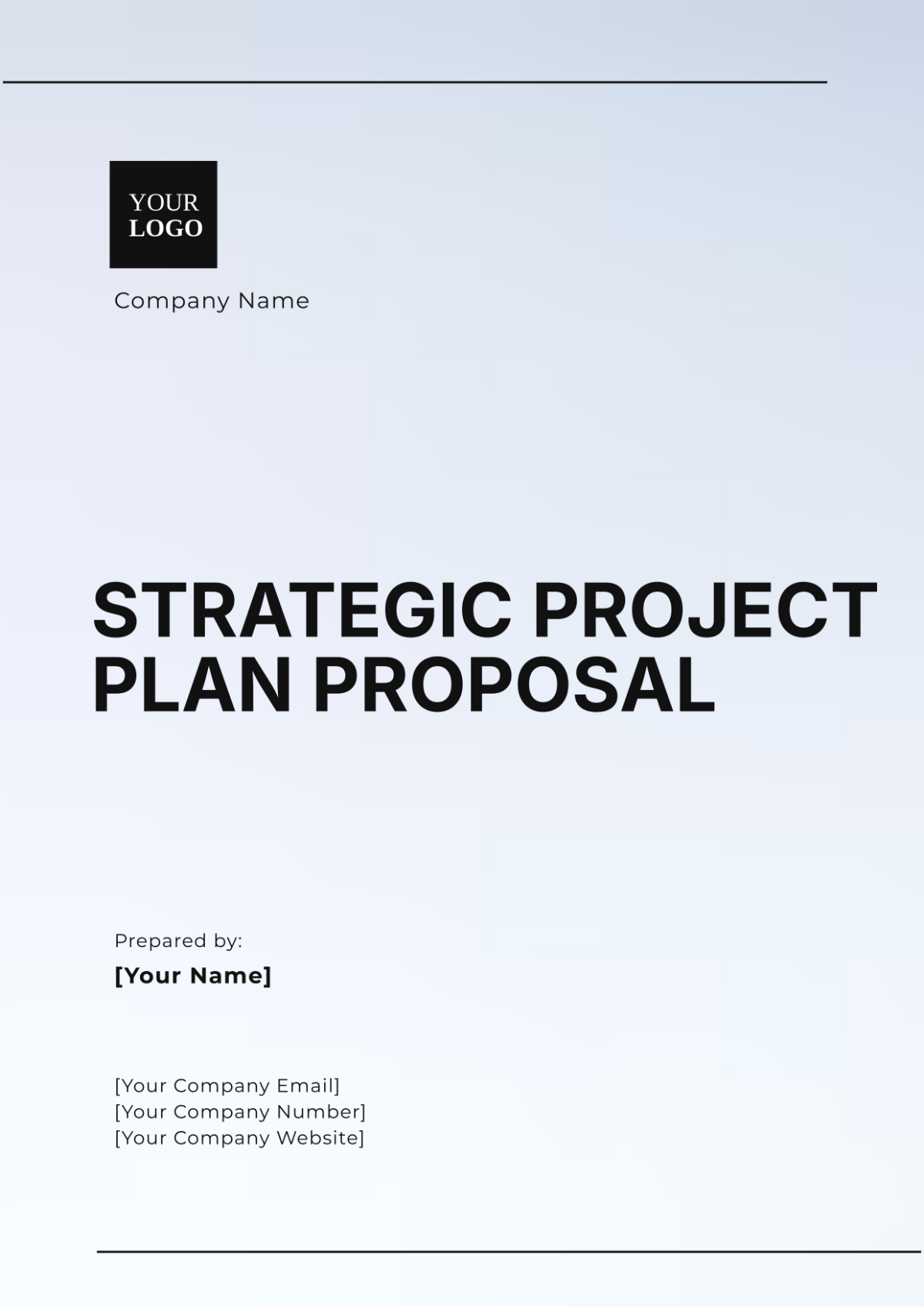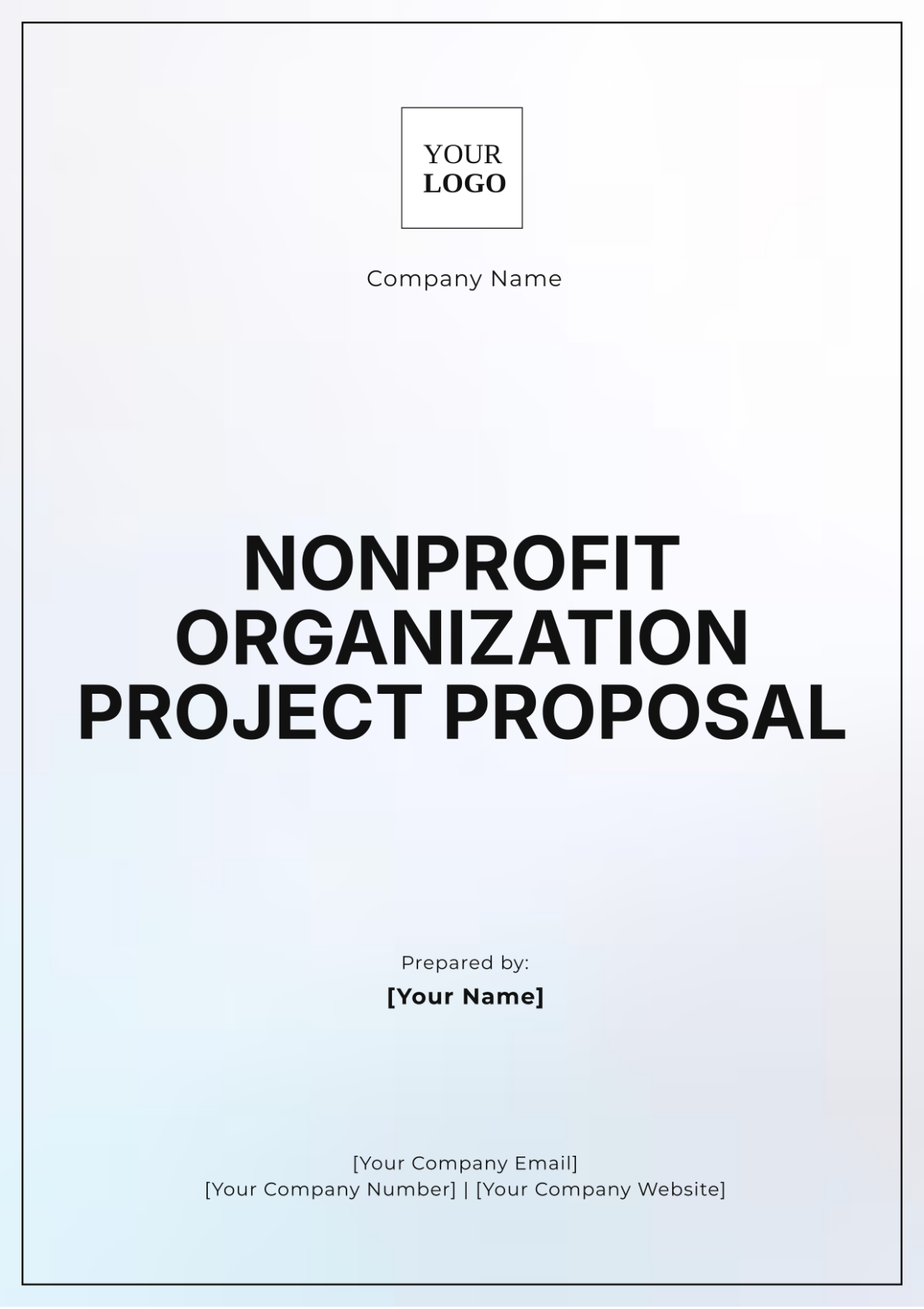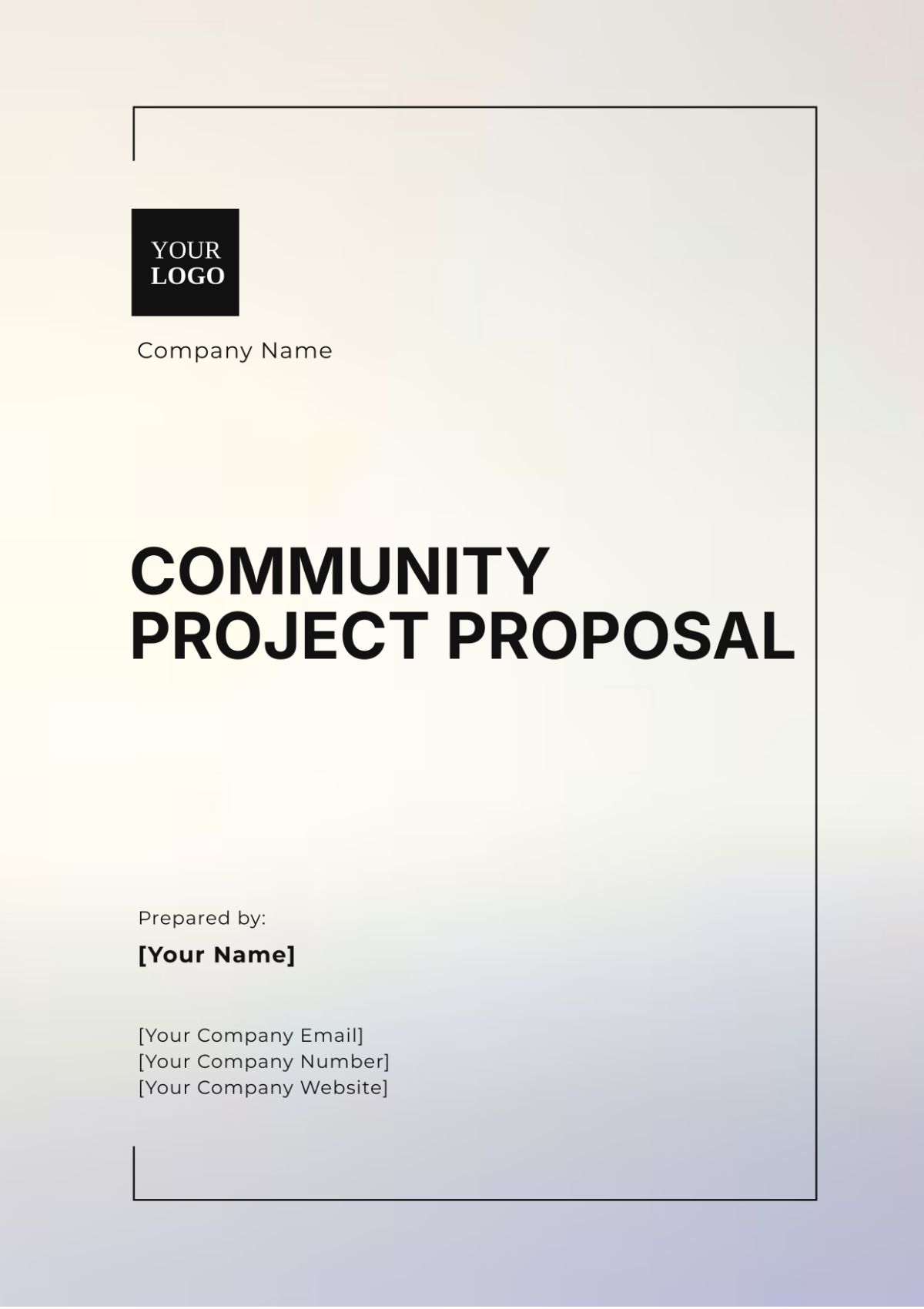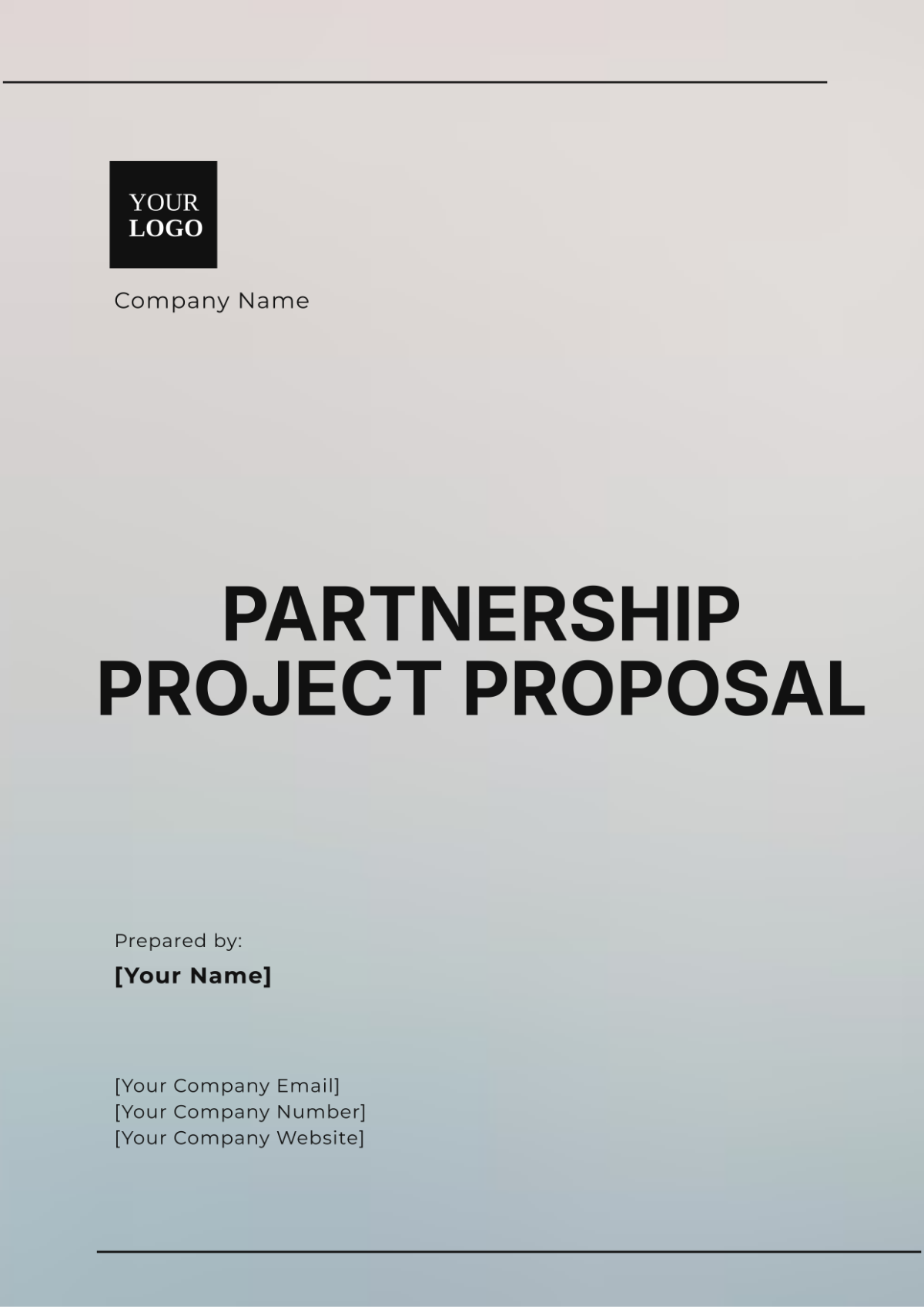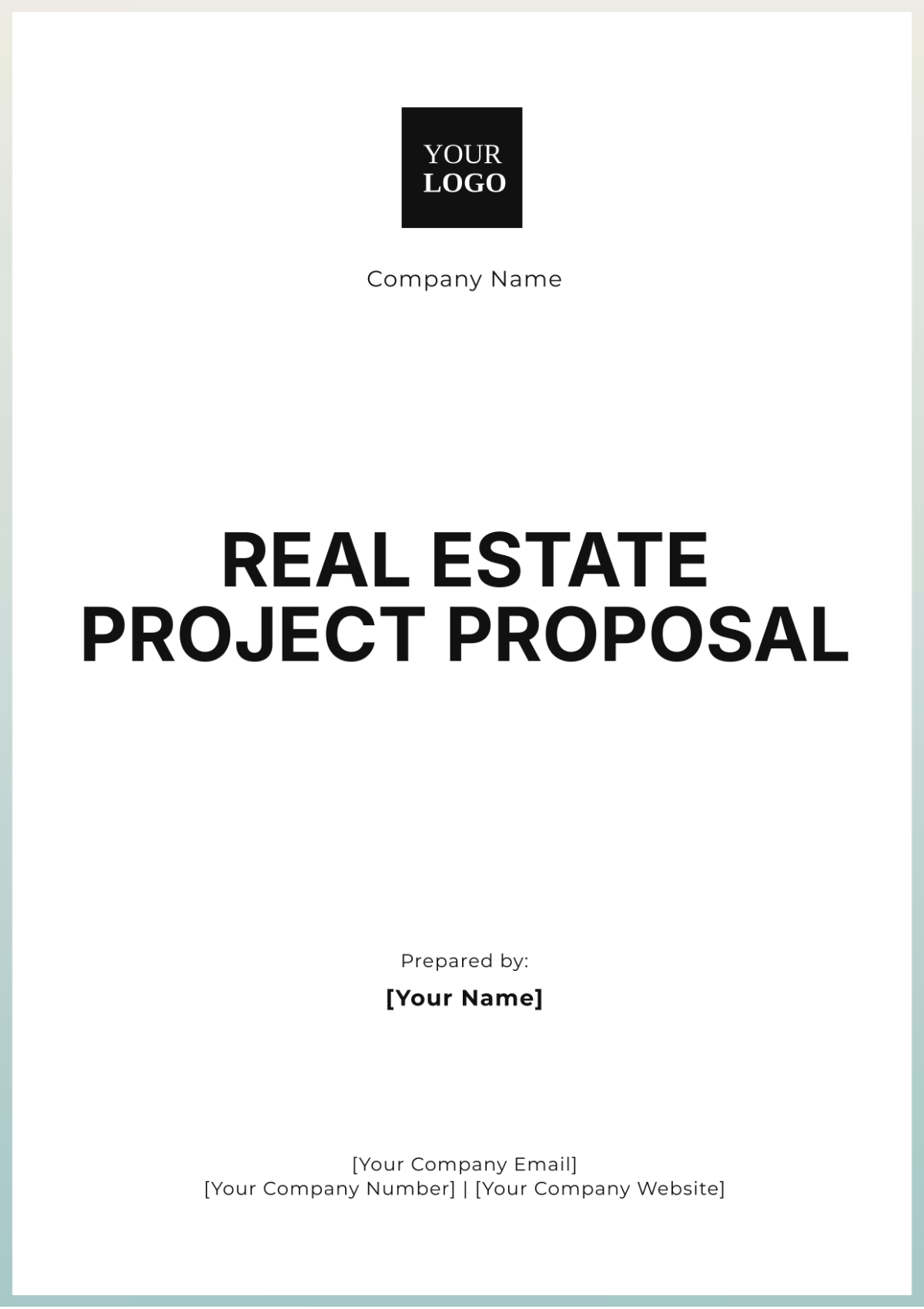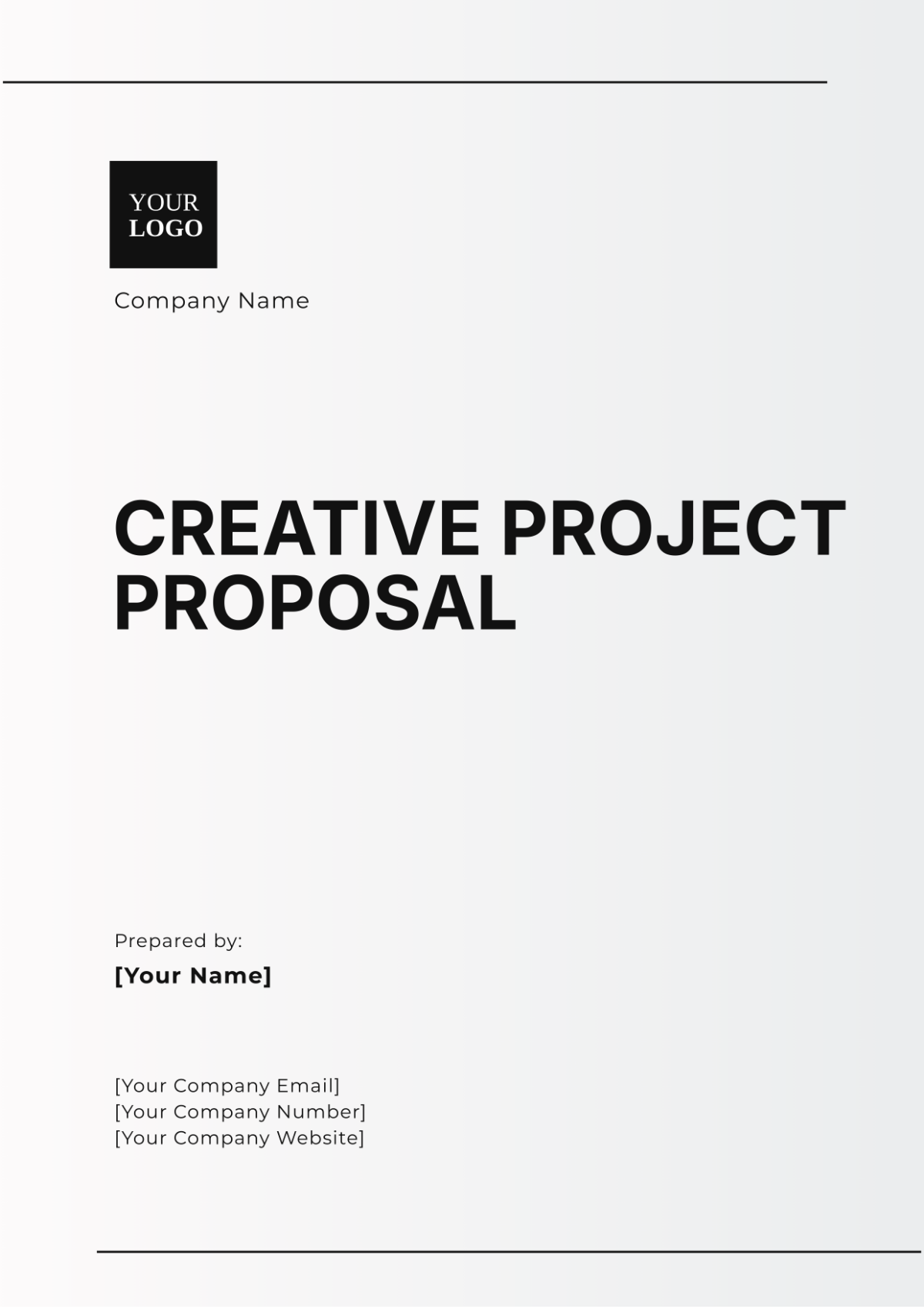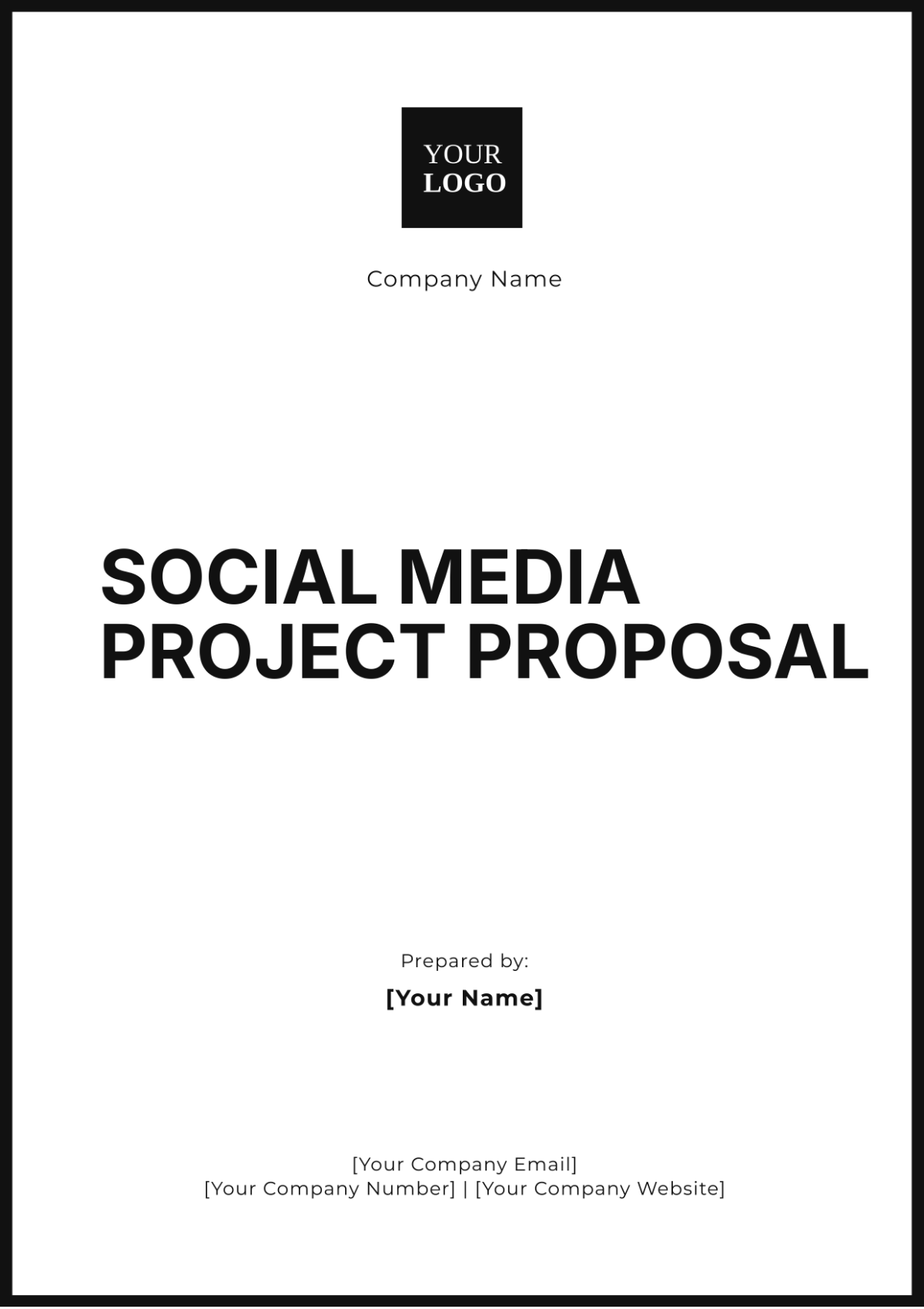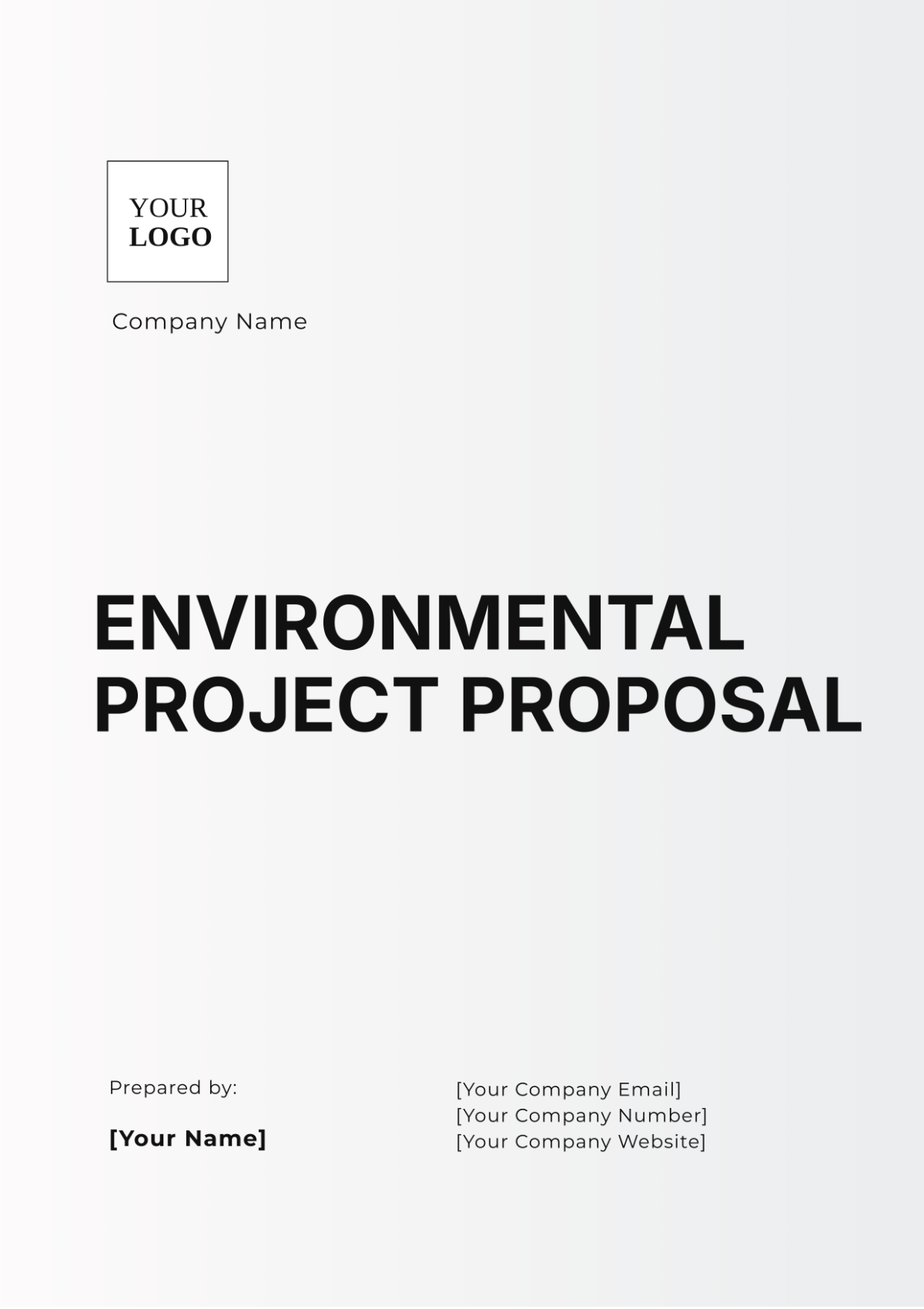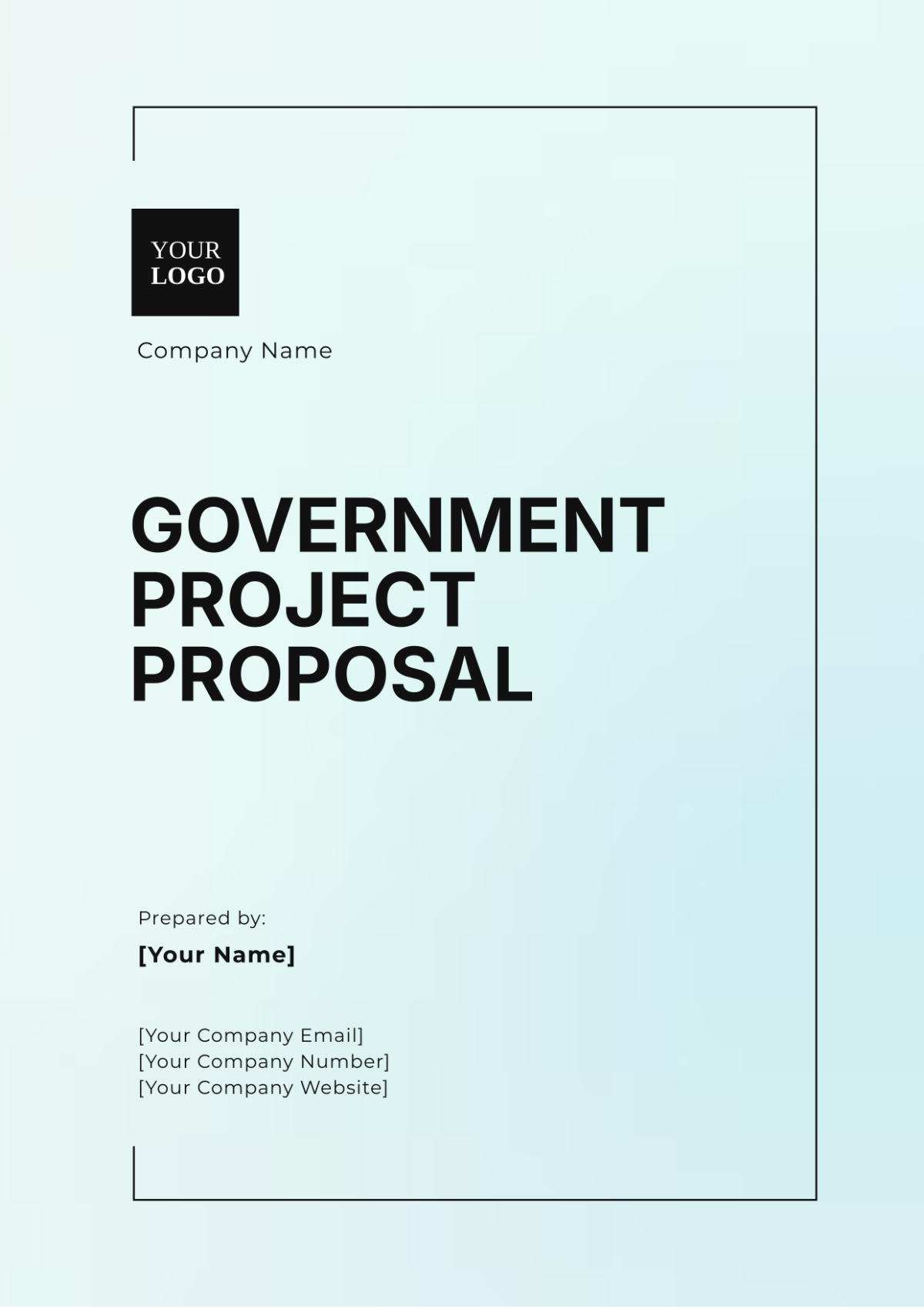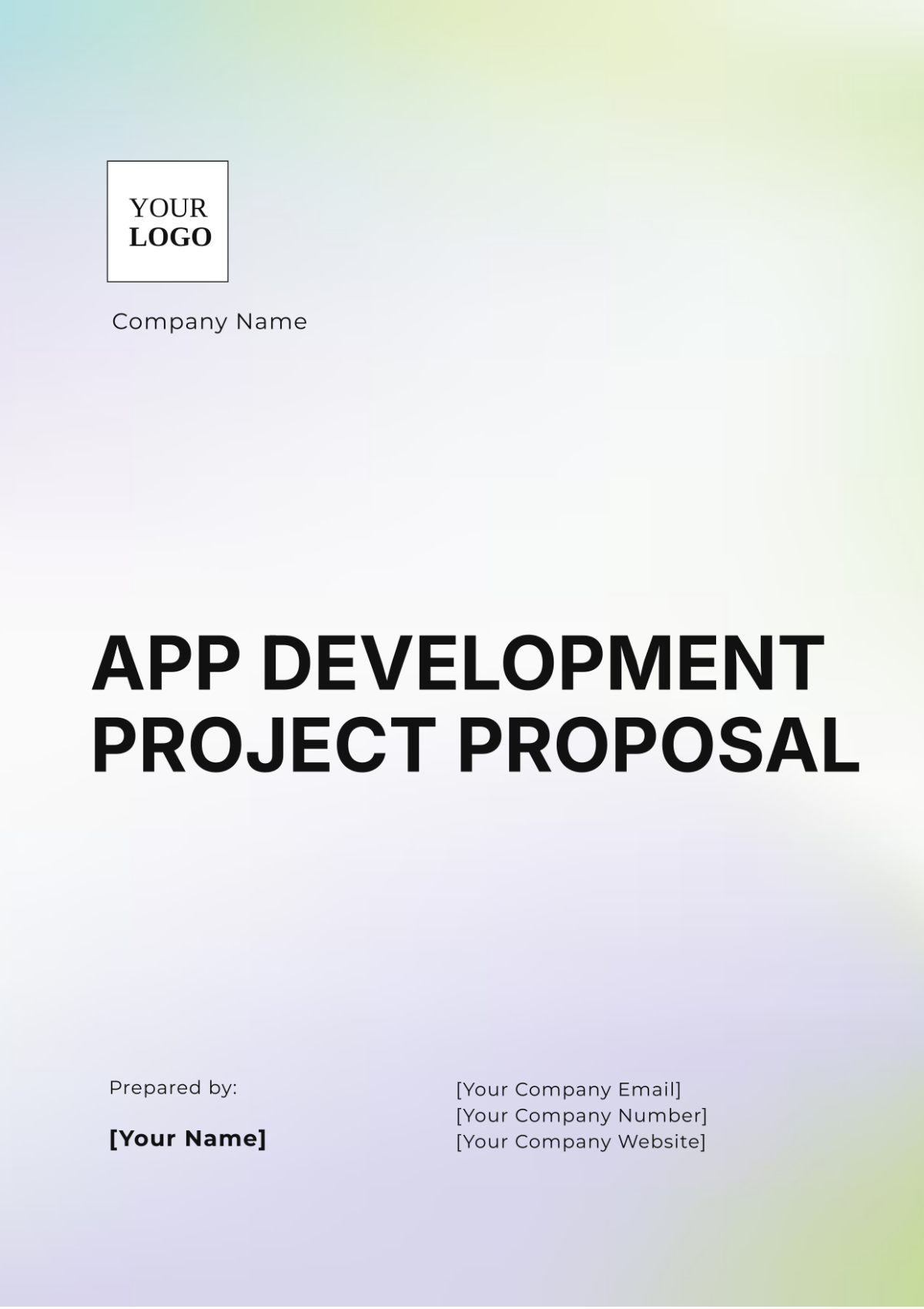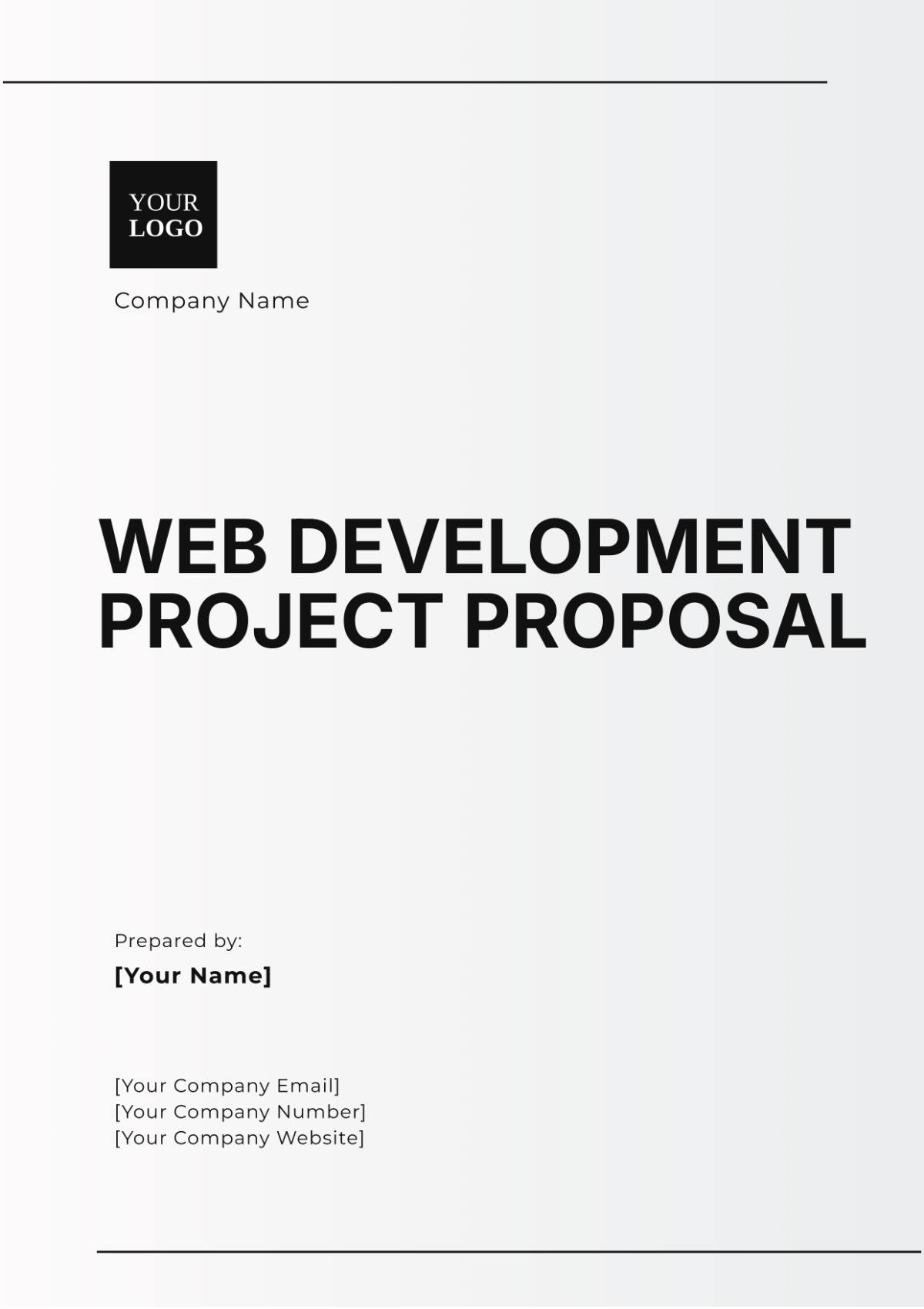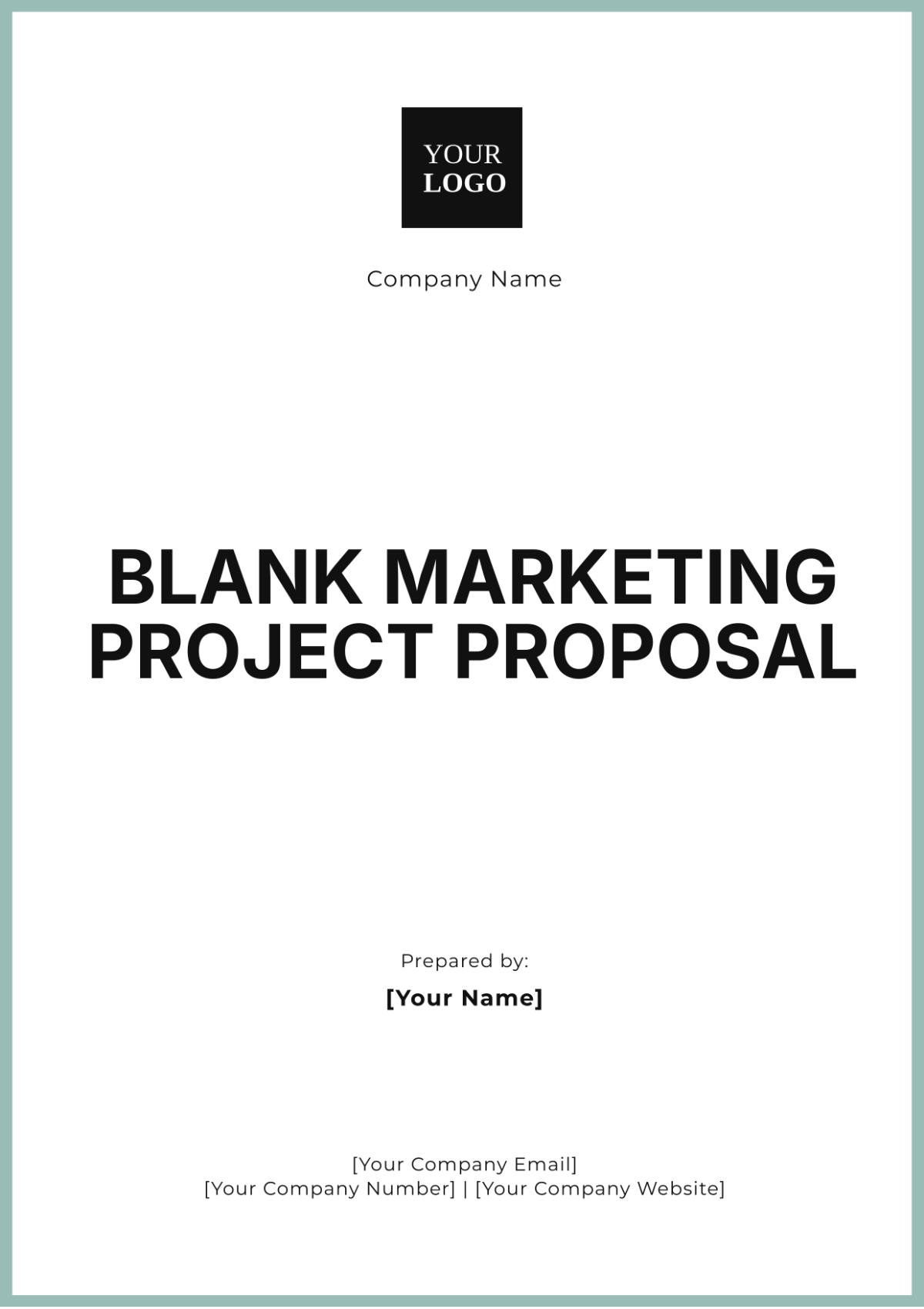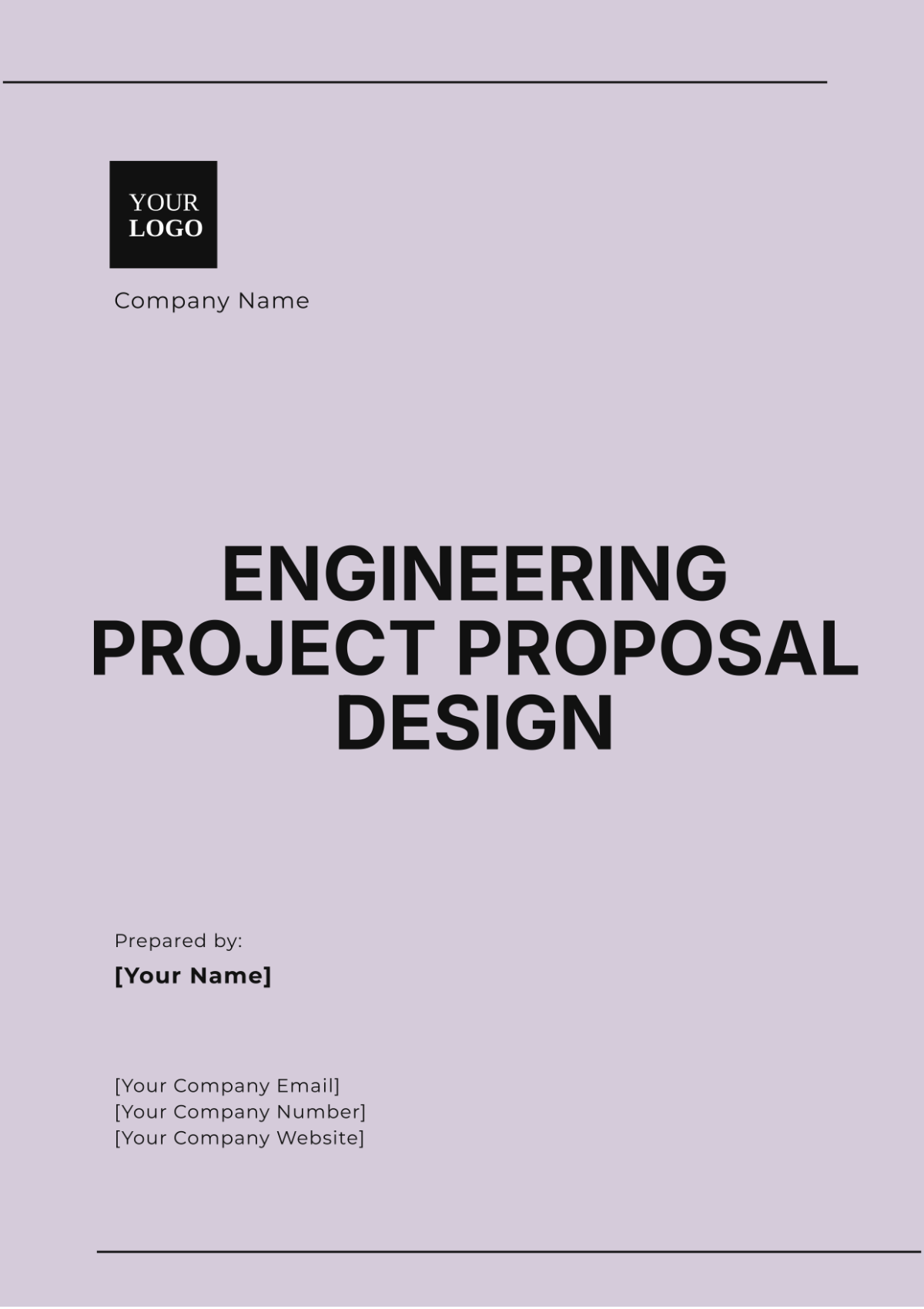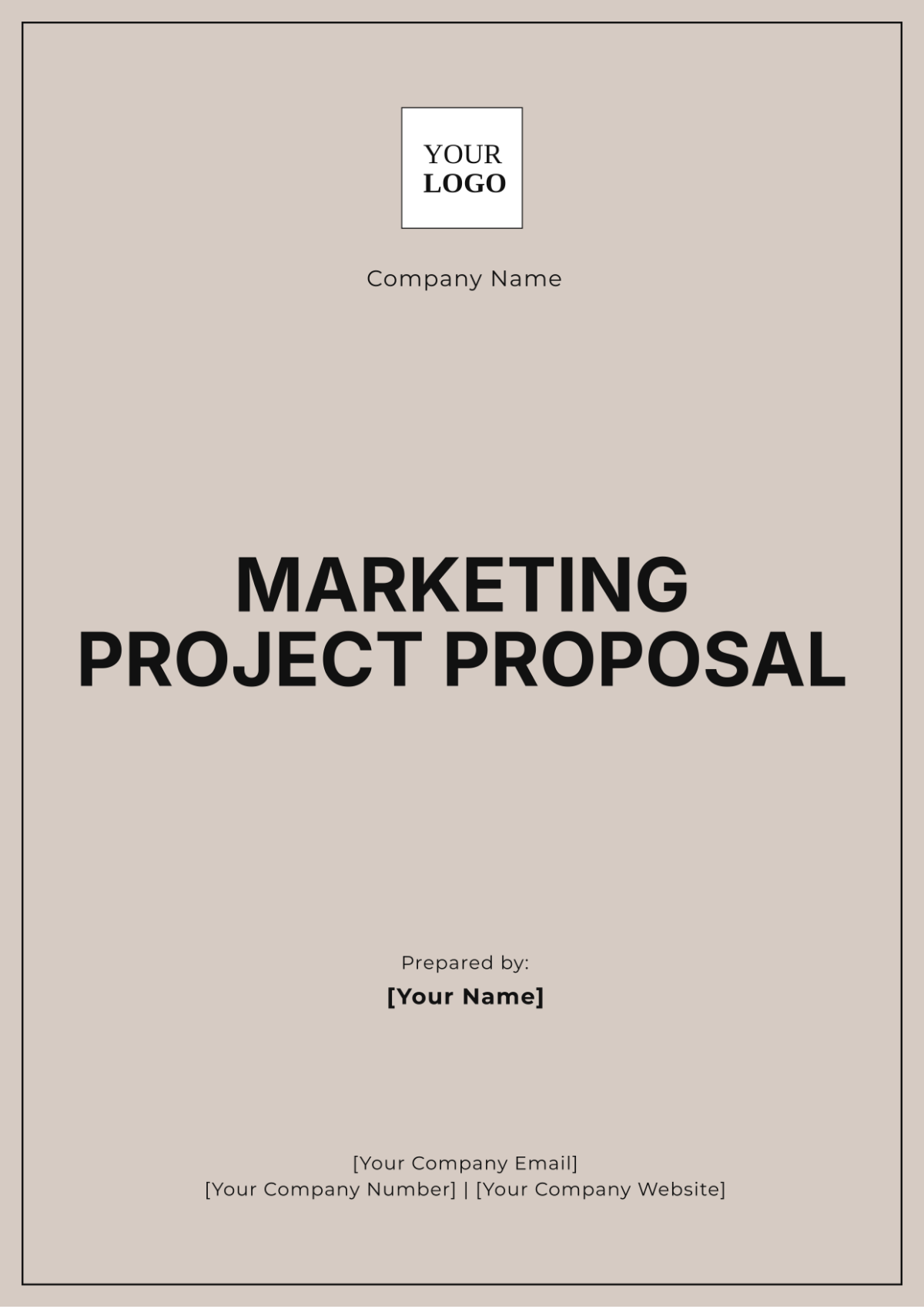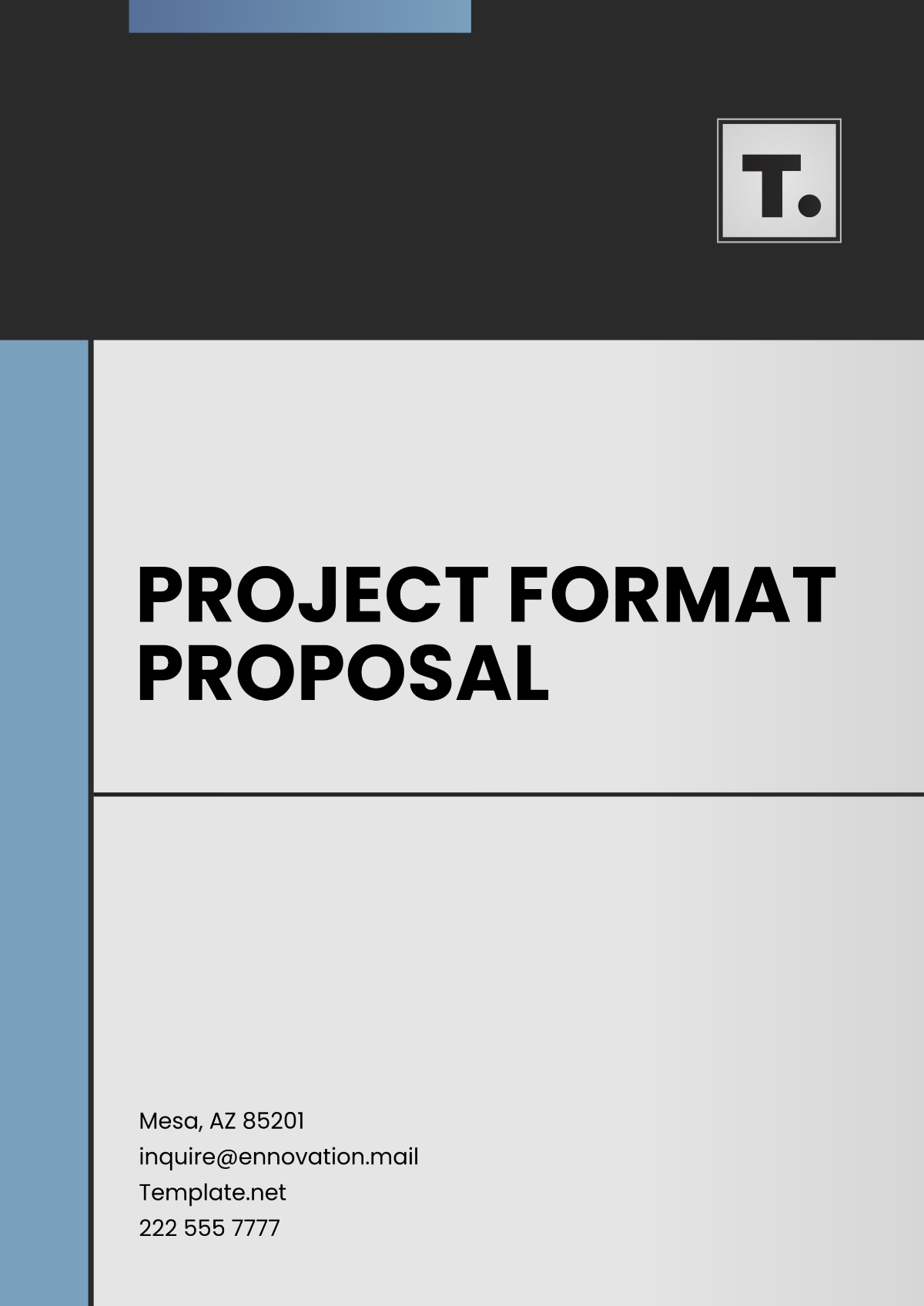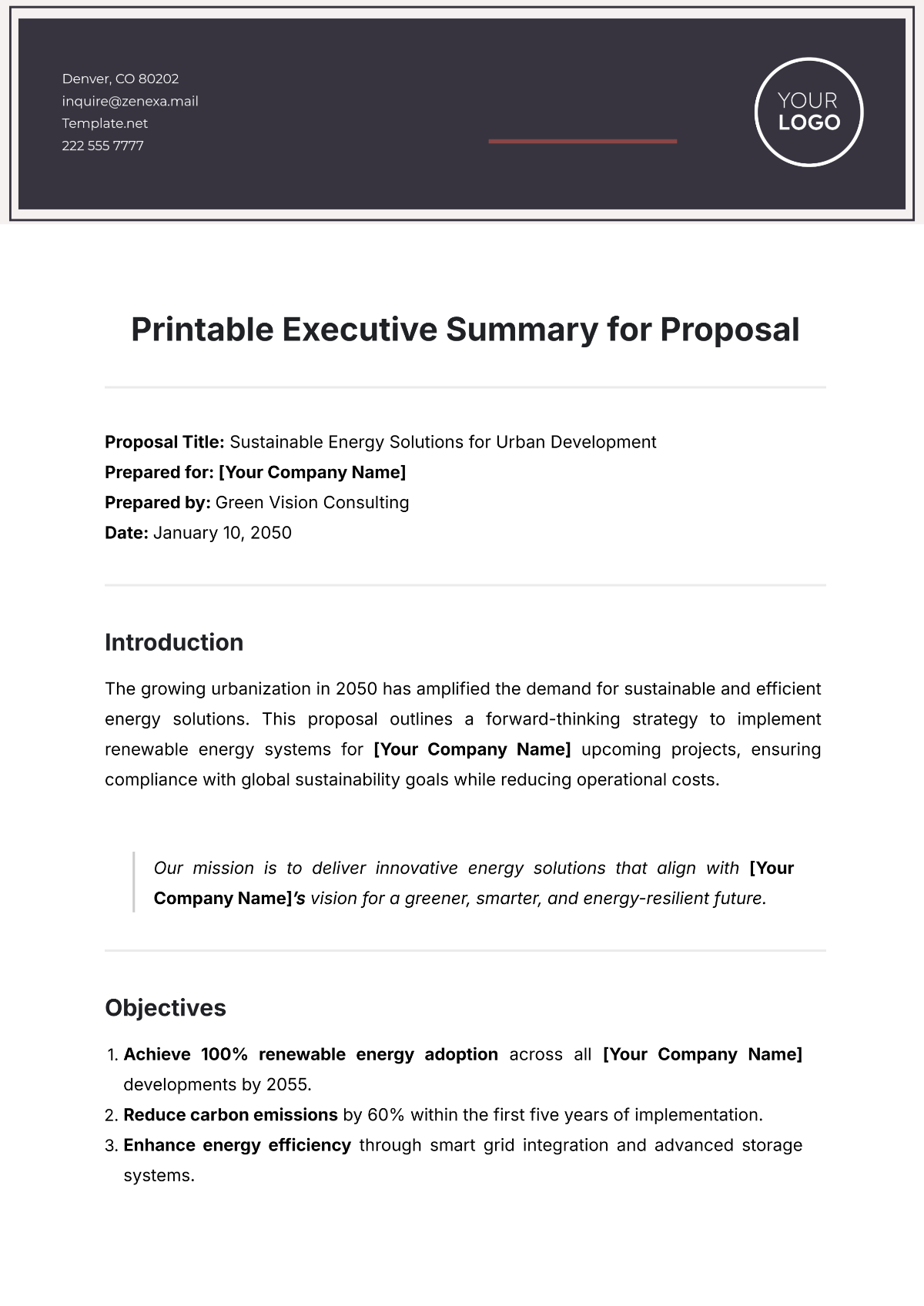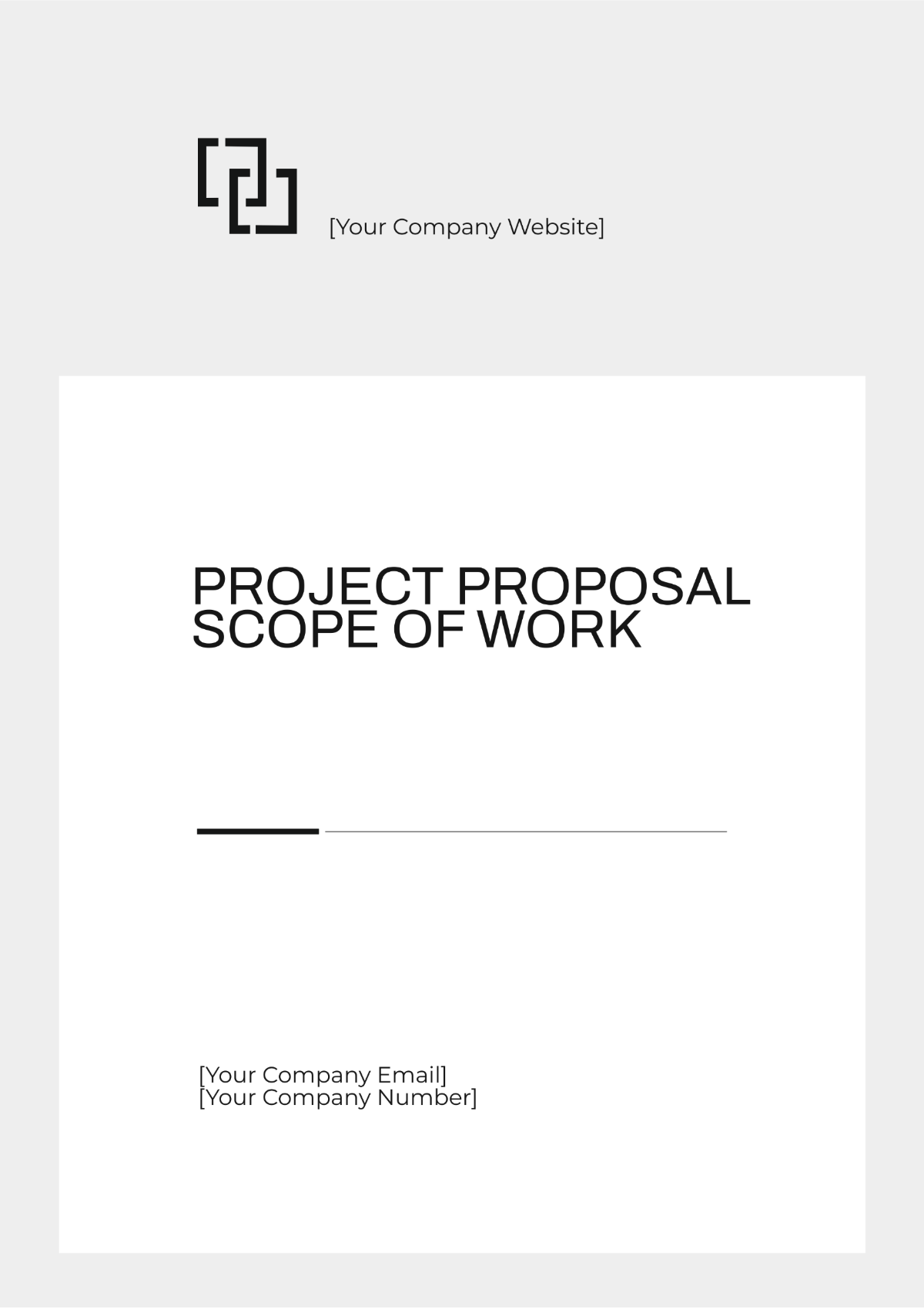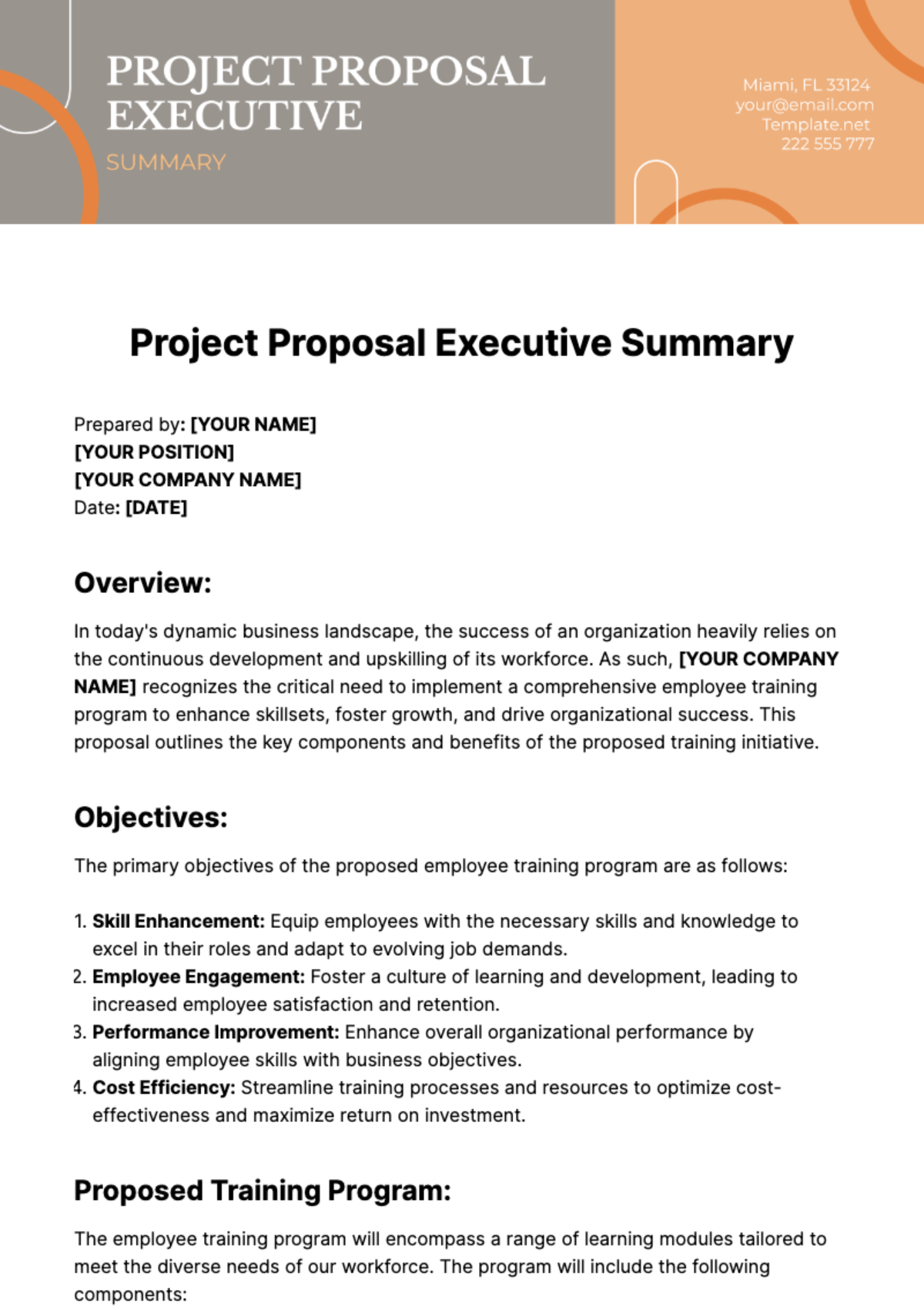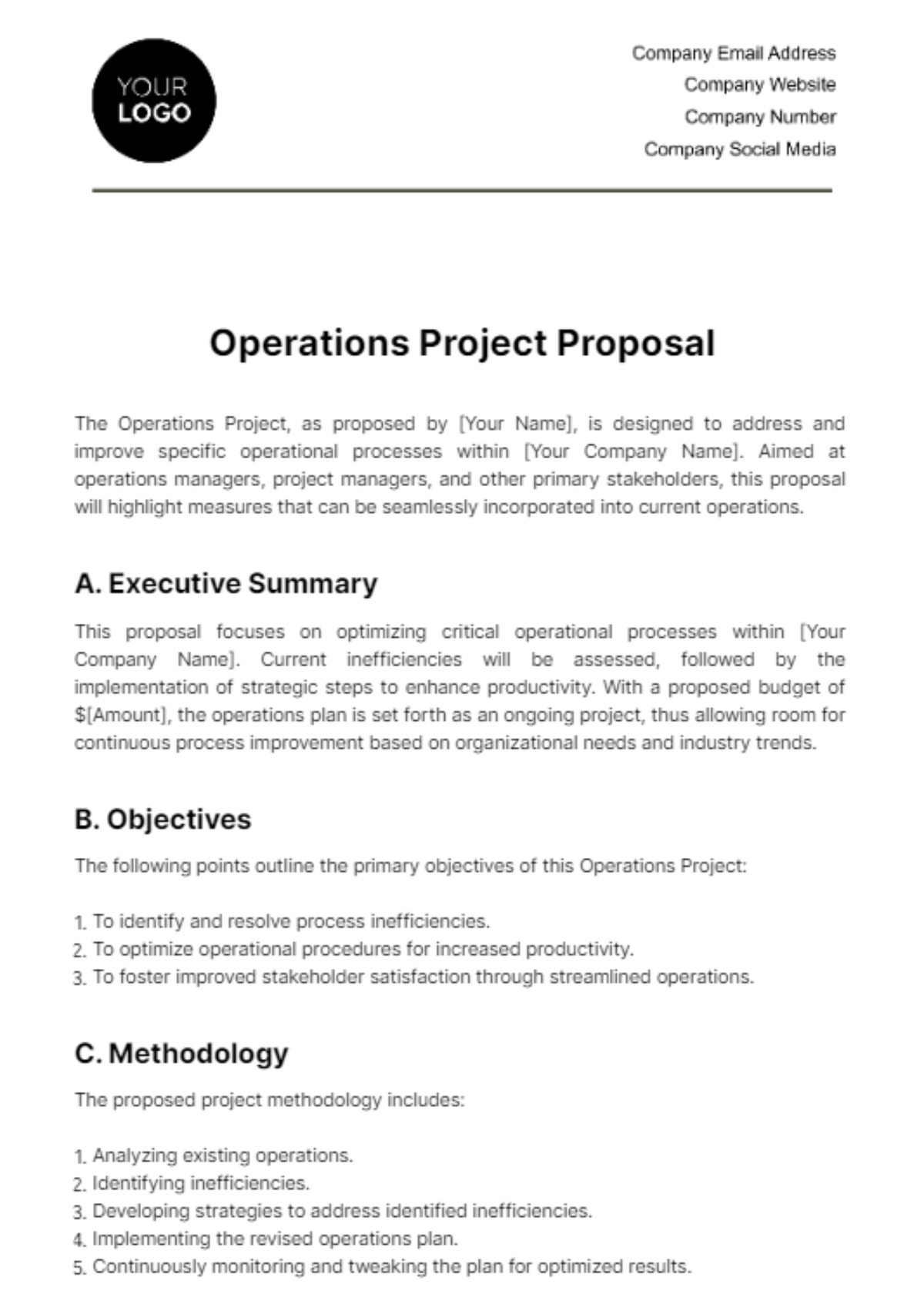Sample Project Proposal
1. Executive Summary
The [Your Company Name] aims to build a state-of-the-art, sustainable smart city powered entirely by renewable solar energy. The project will span 5 years and deliver infrastructure integrating IoT technology, AI-driven urban planning, and cutting-edge solar energy systems. By 2055, this initiative is expected to set a global benchmark for future urban development.
2. Project Objectives
Objective 1: Develop 100% renewable energy-powered infrastructure using advanced solar technology by 2053.
Objective 2: Establish AI-driven smart transportation and urban services, reducing energy consumption by 40% by 2055.
Objective 3: Complete construction of 10,000 residential units with integrated IoT systems by 2054.
Objective 4: Implement green spaces covering 30% of the city’s area by 2053, providing a sustainable urban environment.
3. Scope of Work
Tasks and Deliverables:
Phase 1 (January 2050 – December 2051): Design and Planning
Complete architectural plans for the city layout.
Secure permits and environmental impact assessments.
Phase 2 (January 2052 – December 2053): Infrastructure and Solar Grid Installation
Construct solar grid infrastructure capable of powering 500 MW of electricity.
Install smart grid systems for energy distribution.
Phase 3 (January 2054 – December 2055): Smart Systems and Housing Development
Build 10,000 smart homes with IoT technology.
Implement smart city management software, including AI-driven traffic and utilities systems.
Finalize public infrastructure, parks, and transportation systems.
Exclusions:
Excludes the development of industrial zones (focus is on residential and commercial areas).
Any work on non-renewable energy sources will not be included.
4. Project Timeline
Task/Phase | Start Date | End Date | Responsible Party |
|---|---|---|---|
Phase 1: Design and Planning | January 1, 2050 | December 31, 2051 | Smart City Architects |
Phase 2: Solar Grid Installation | January 1, 2052 | December 31, 2053 | Renewable Energy Group |
Phase 3: Smart Home & Public Infrastructure Development | January 1, 2054 | December 31, 2055 | Residential Development Team |
5. Budget
Item/Category | Estimated Cost (in USD) |
|---|---|
Design and Planning | $50 million |
Solar Grid Construction | $400 million |
IoT & Smart Systems | $150 million |
Residential Housing Development | $600 million |
Public Infrastructure & Green Spaces | $200 million |
Total Estimated Budget | $1.4 billion |
6. Risk Management
Risk 1: Solar Grid Failure due to Unforeseen Weather Conditions
Mitigation: Install backup battery storage systems with a capacity of 200 MWh.
Risk 2: Budget Overrun due to Material Cost Increases
Mitigation: Establish fixed-price contracts with suppliers and reserve 10% of the budget for contingencies.
Risk 3: Delays in AI System Implementation
Mitigation: Partner with multiple AI vendors to ensure redundancy and rapid deployment.
7. Project Team
Team Member | Role | Responsibilities |
|---|---|---|
John Doe | Project Manager | Oversee project execution and milestones |
Jane Smith | Lead Architect | Design city layout and residential areas |
Tom Lee | Energy Specialist | Implement solar grid and renewable systems |
Alice Martin | AI Integration Lead | Develop smart city AI management systems |
Maria Gomez | Sustainability Officer | Oversee green space and sustainability initiatives |
8. Conclusion
The [Your Company Name] represents a bold step forward in sustainable urban design. With its innovative use of solar power, AI, and IoT systems, the project will reduce carbon emissions and provide a futuristic living environment. We seek approval to move forward with Phase 1 of the initiative, to transform urban development by 2055.
Signature:

[Your Name]
